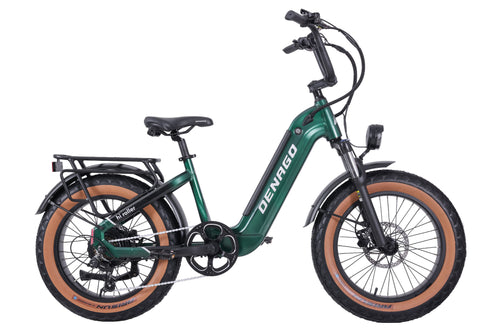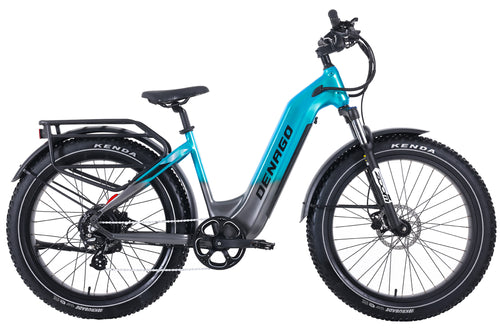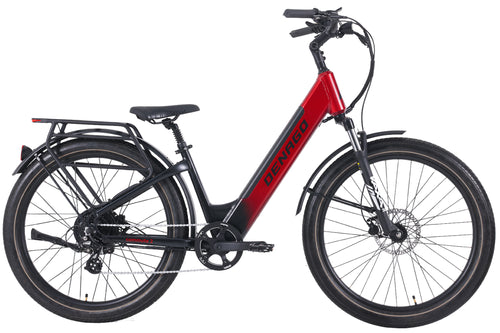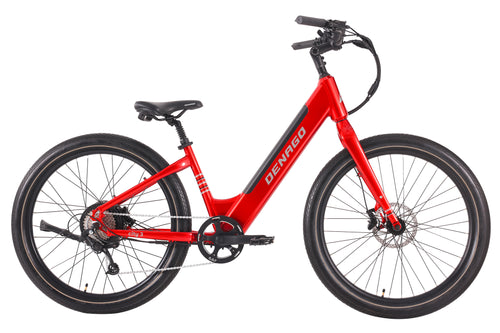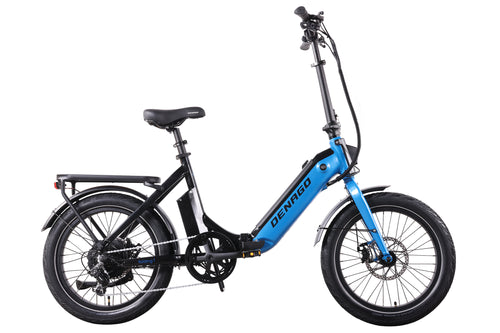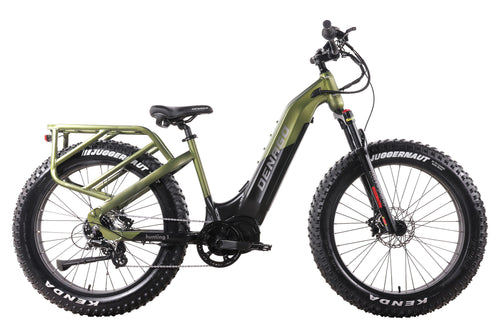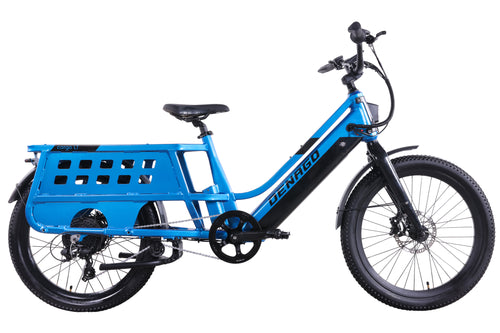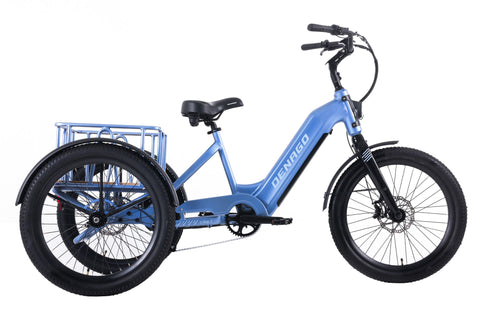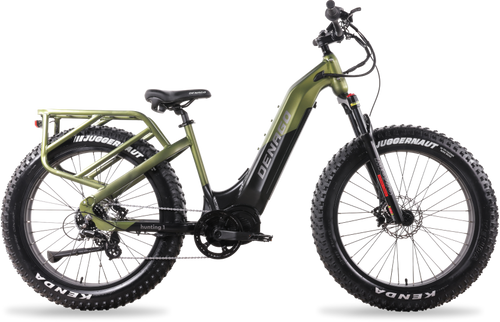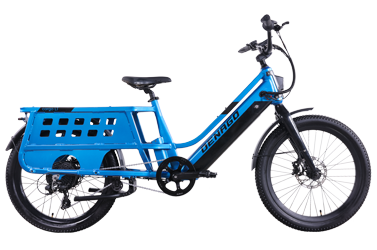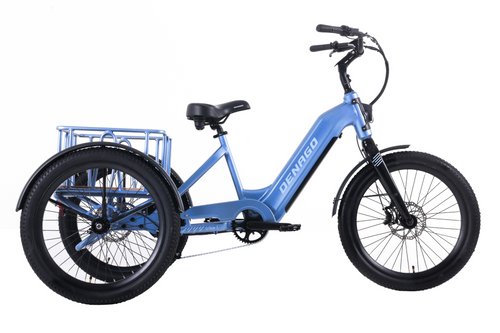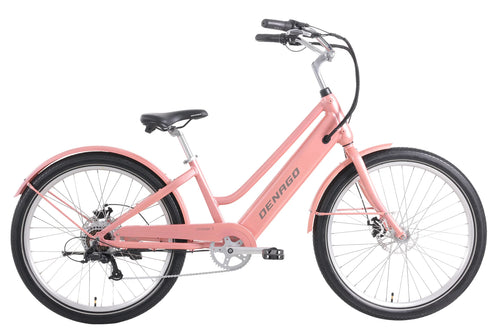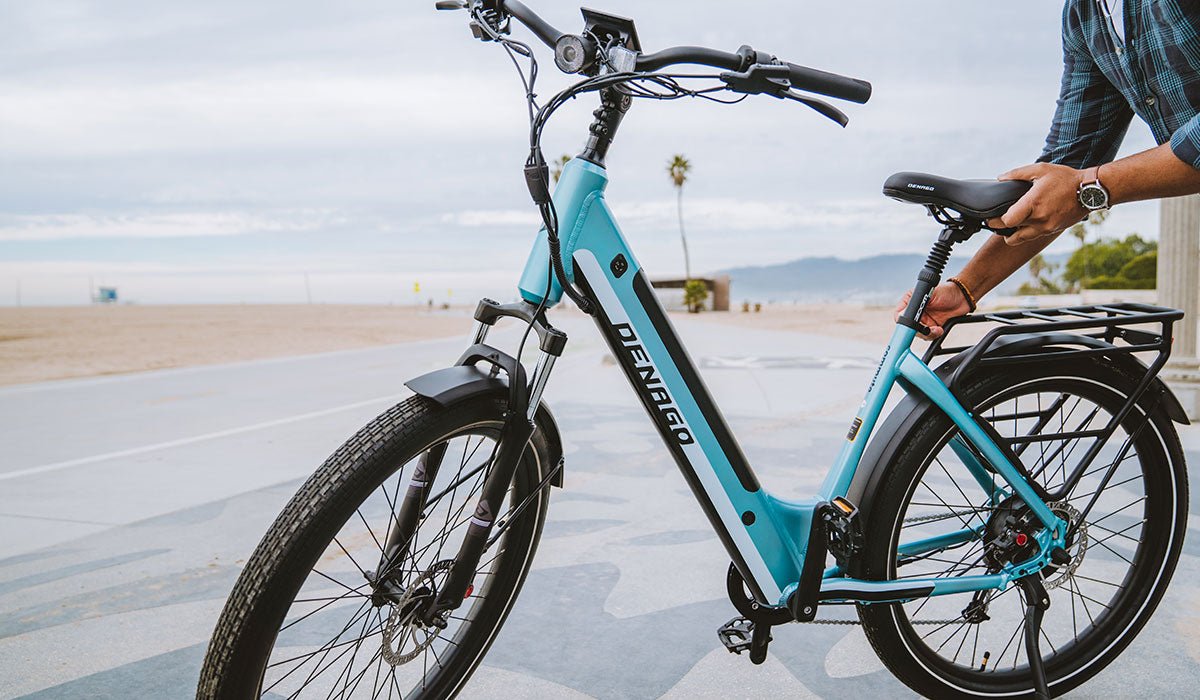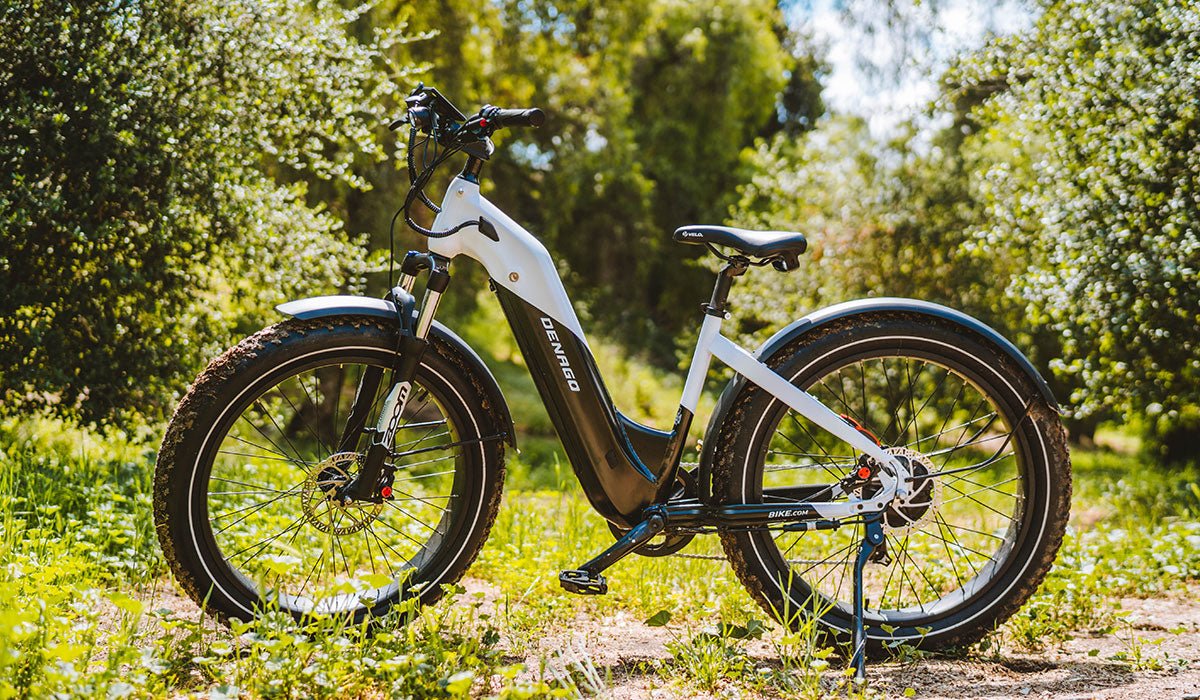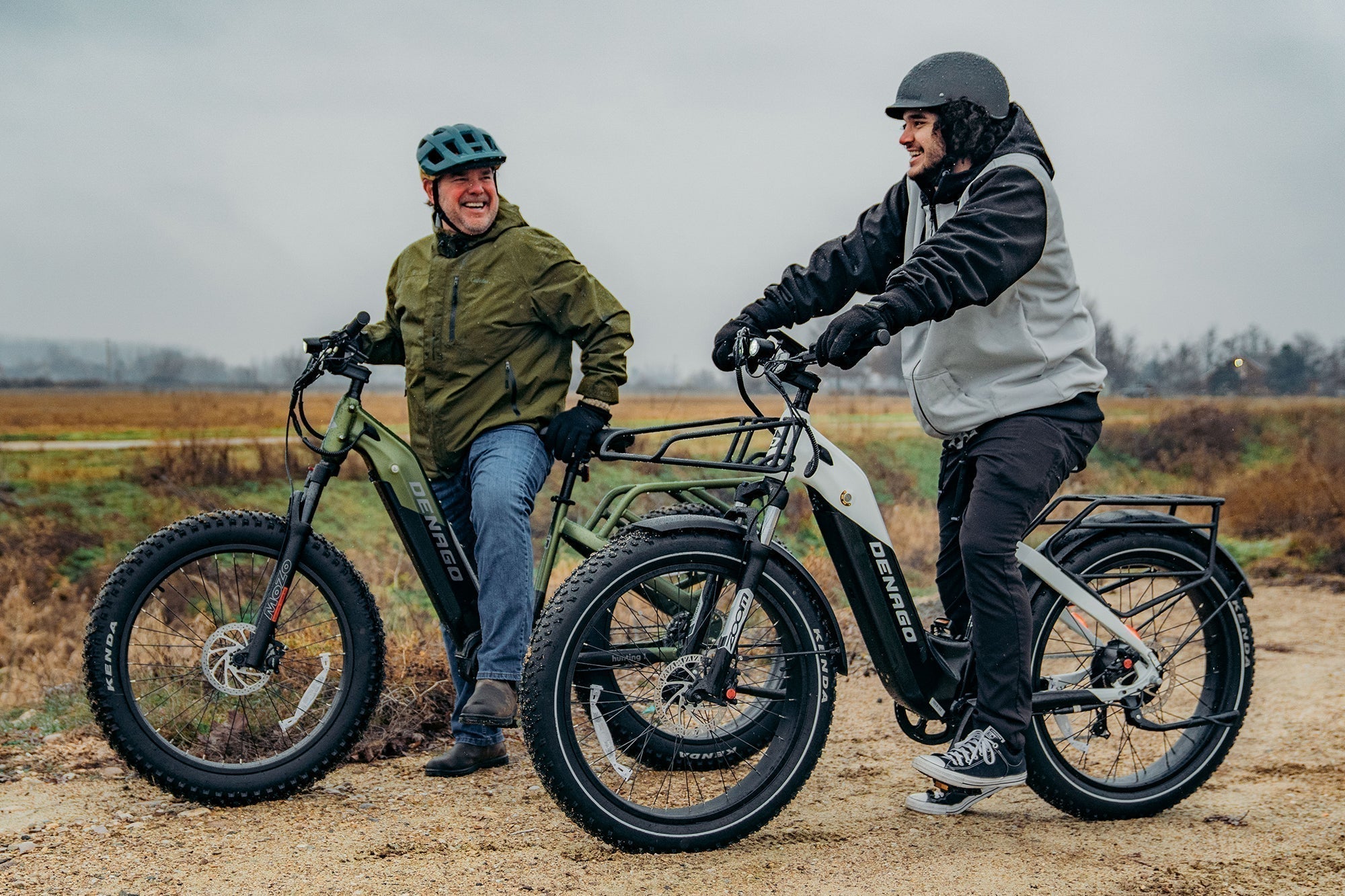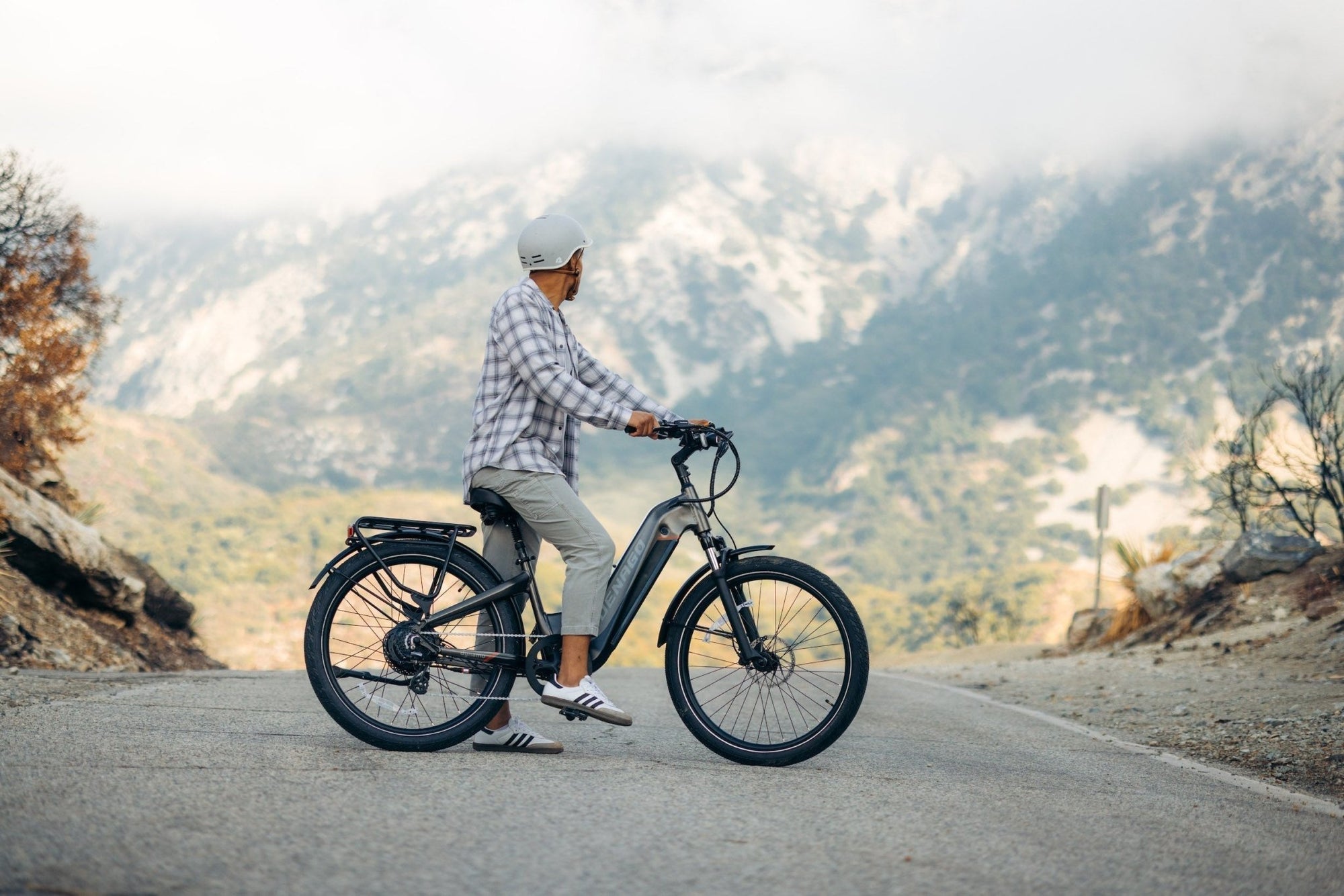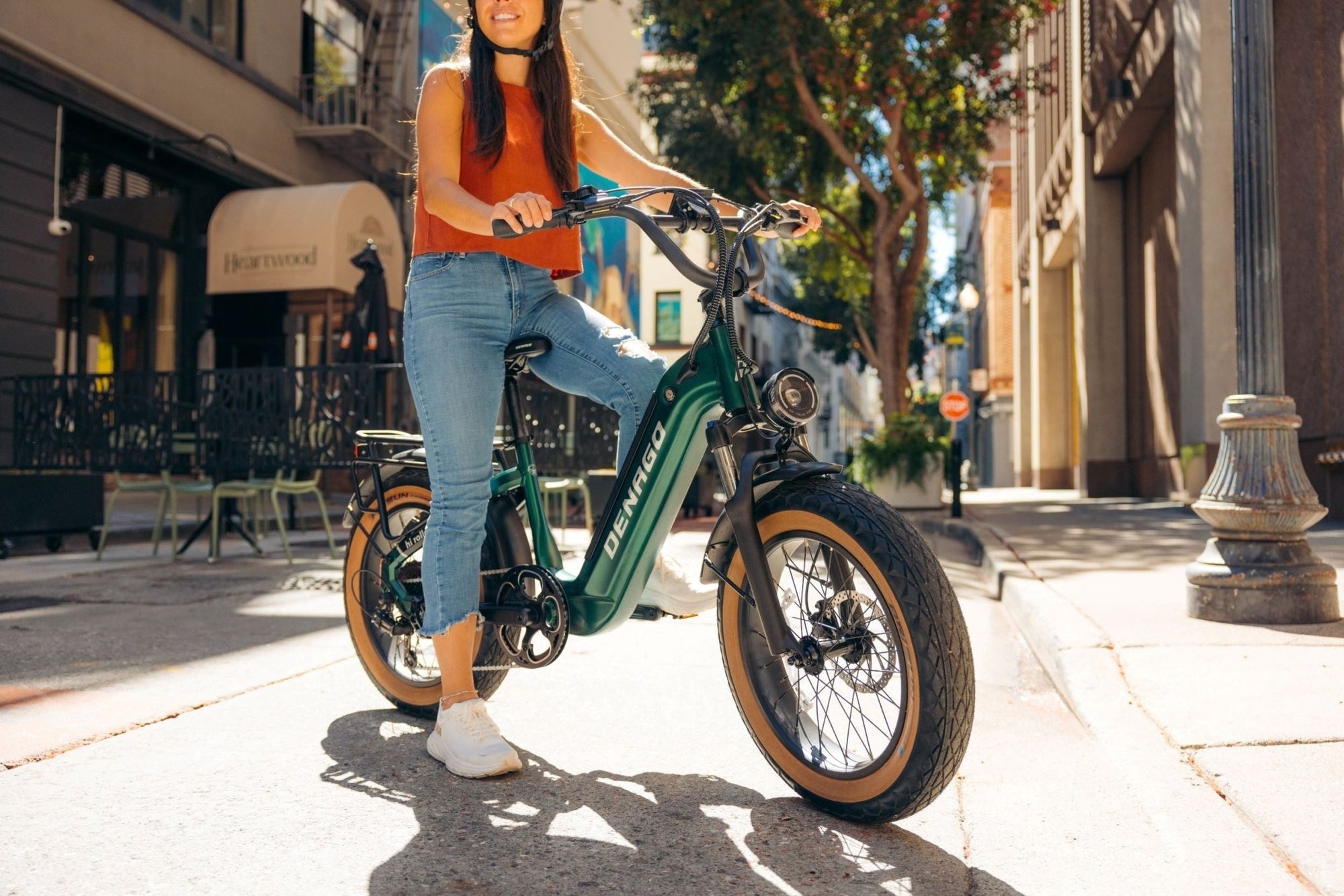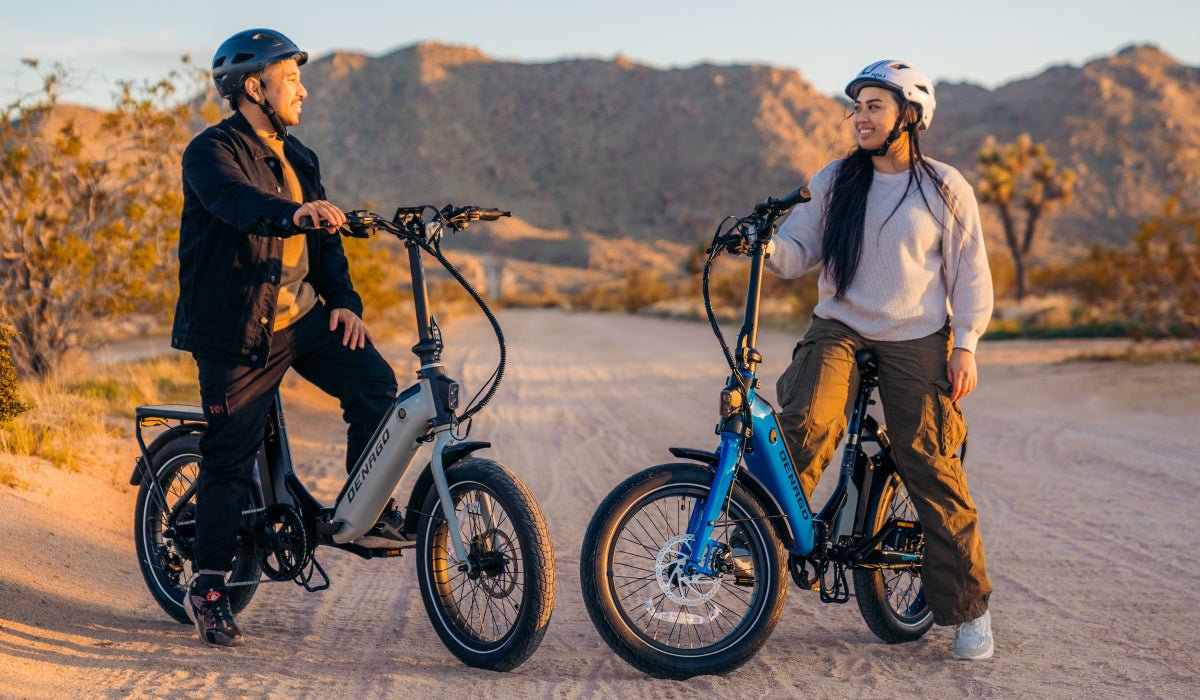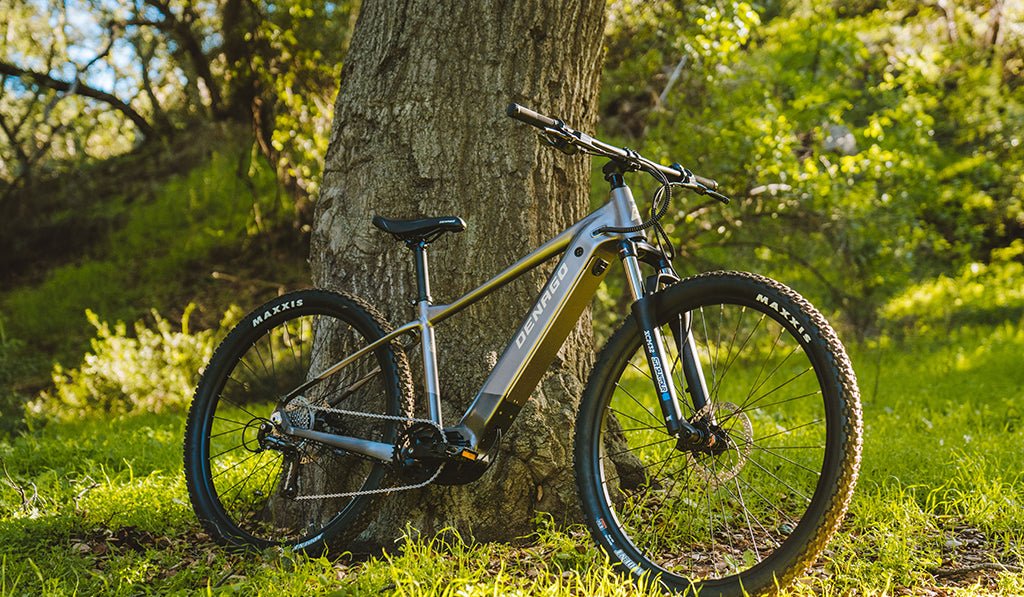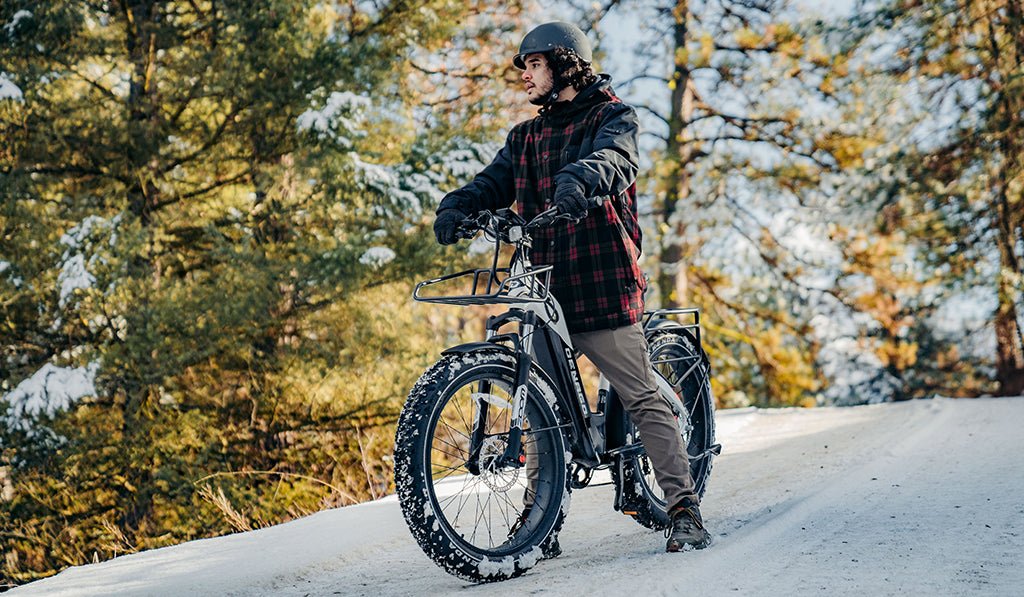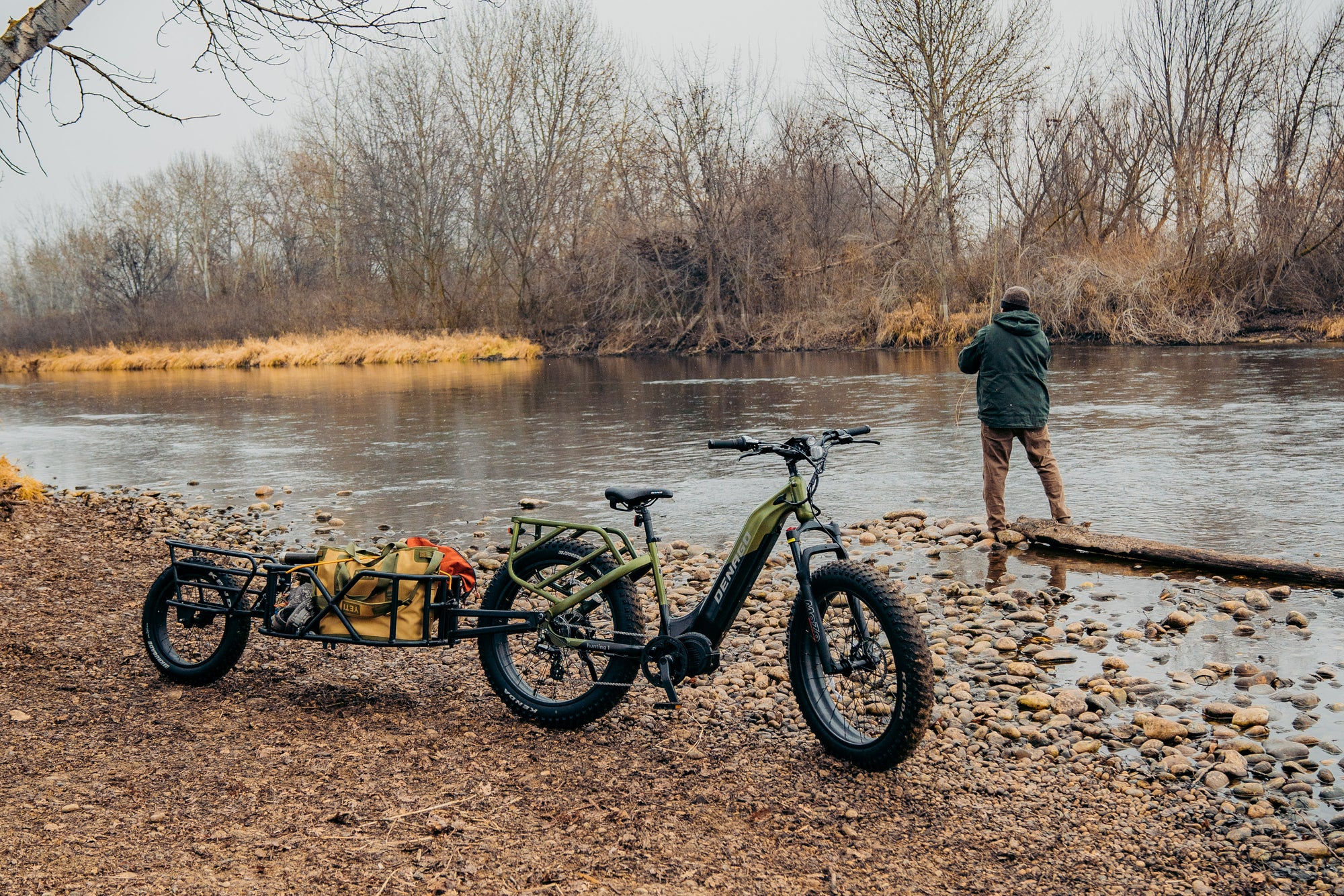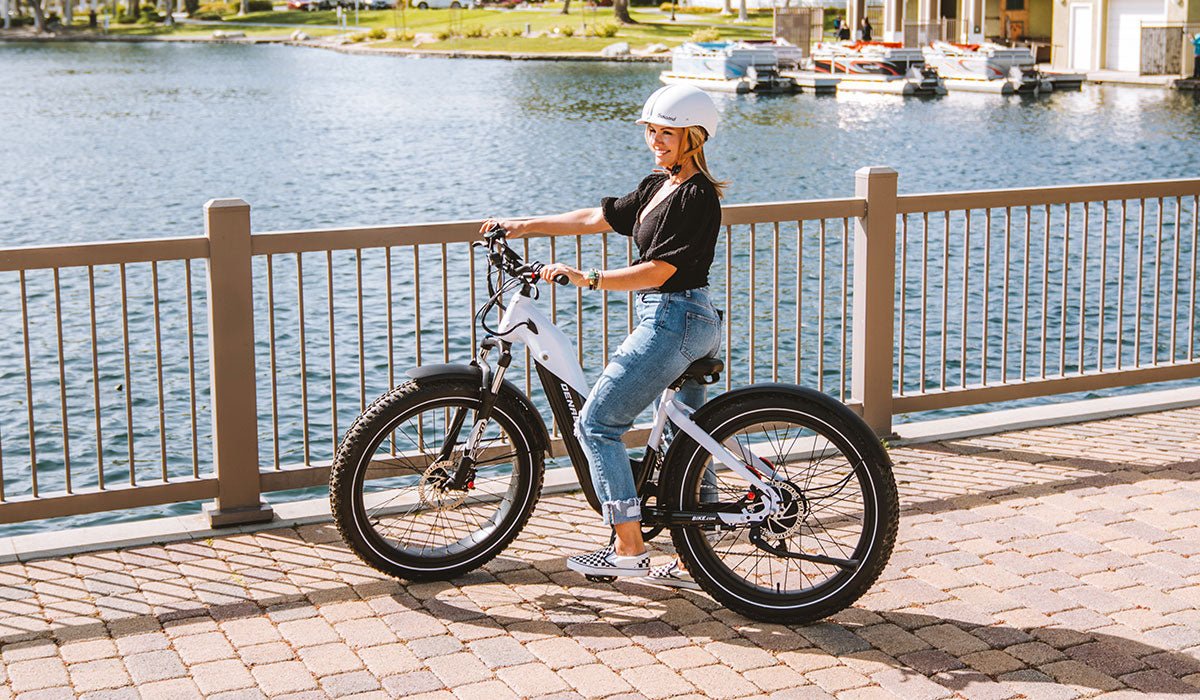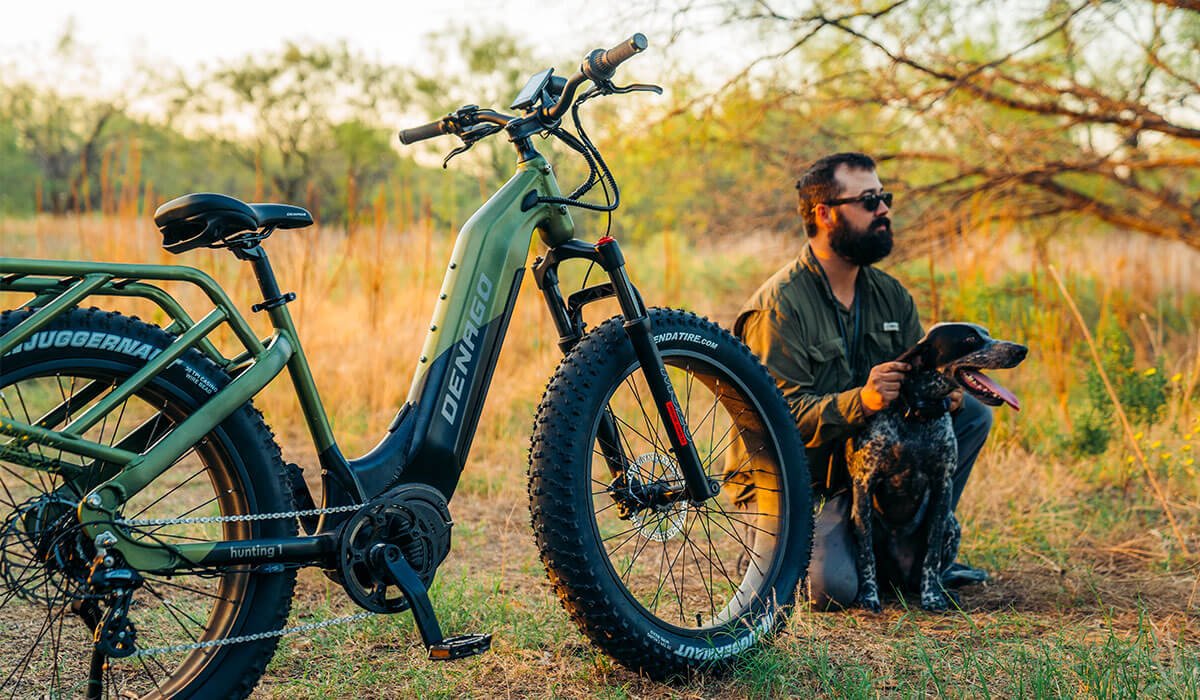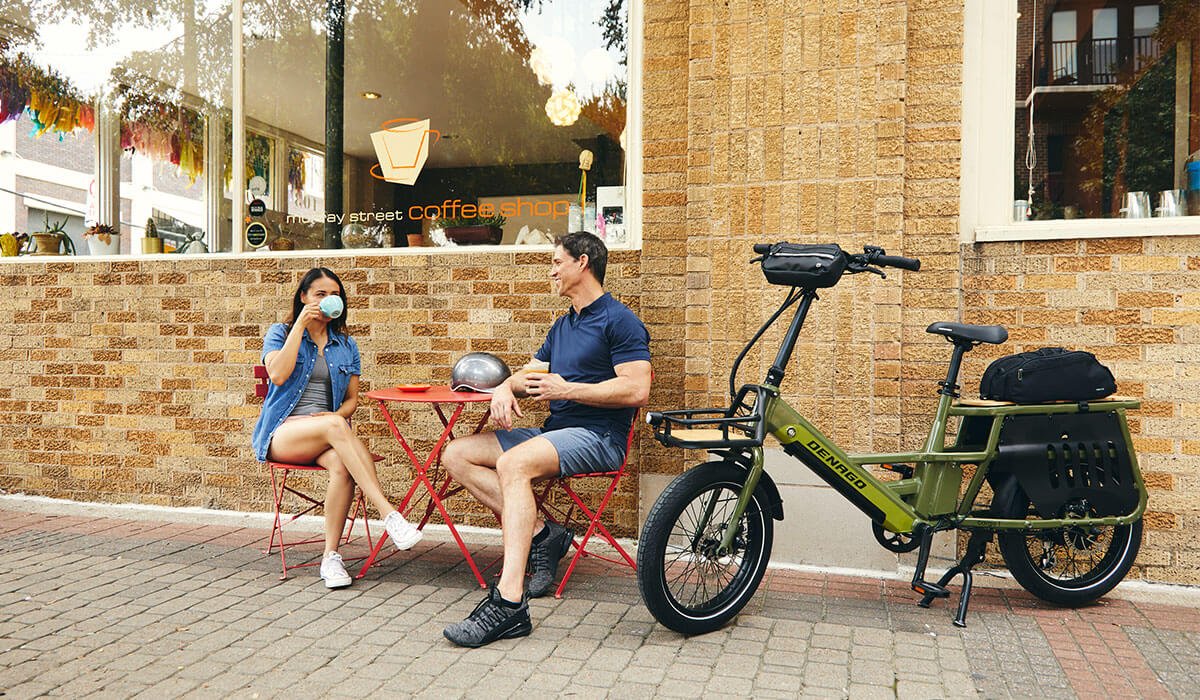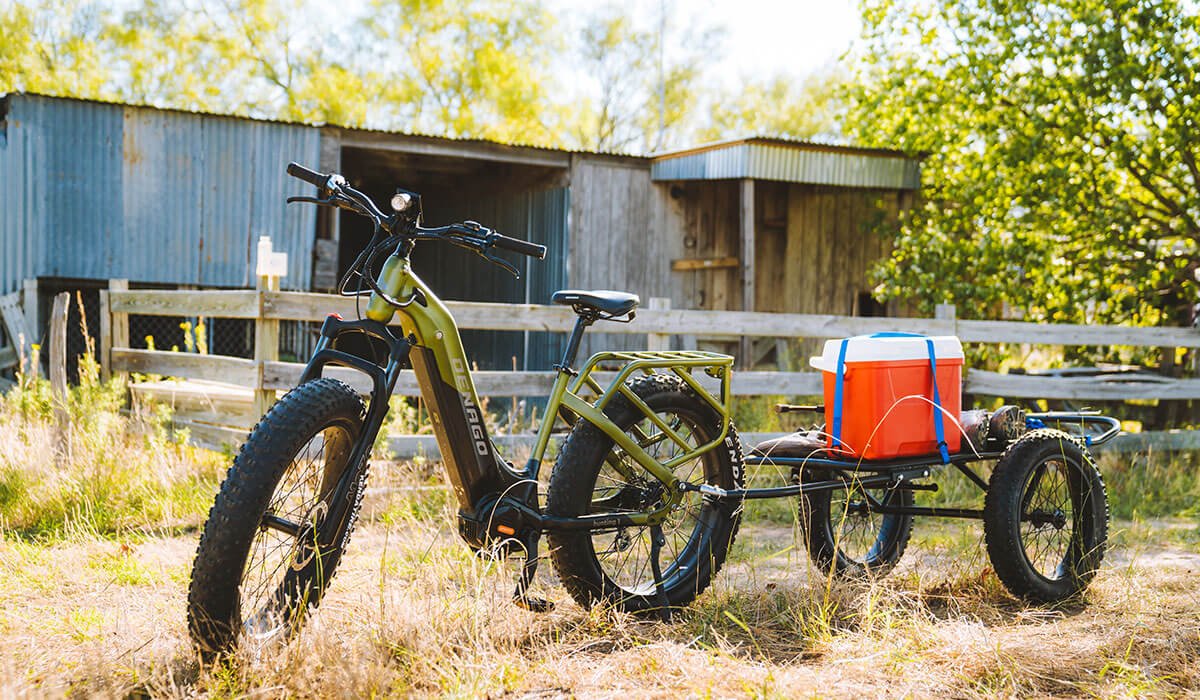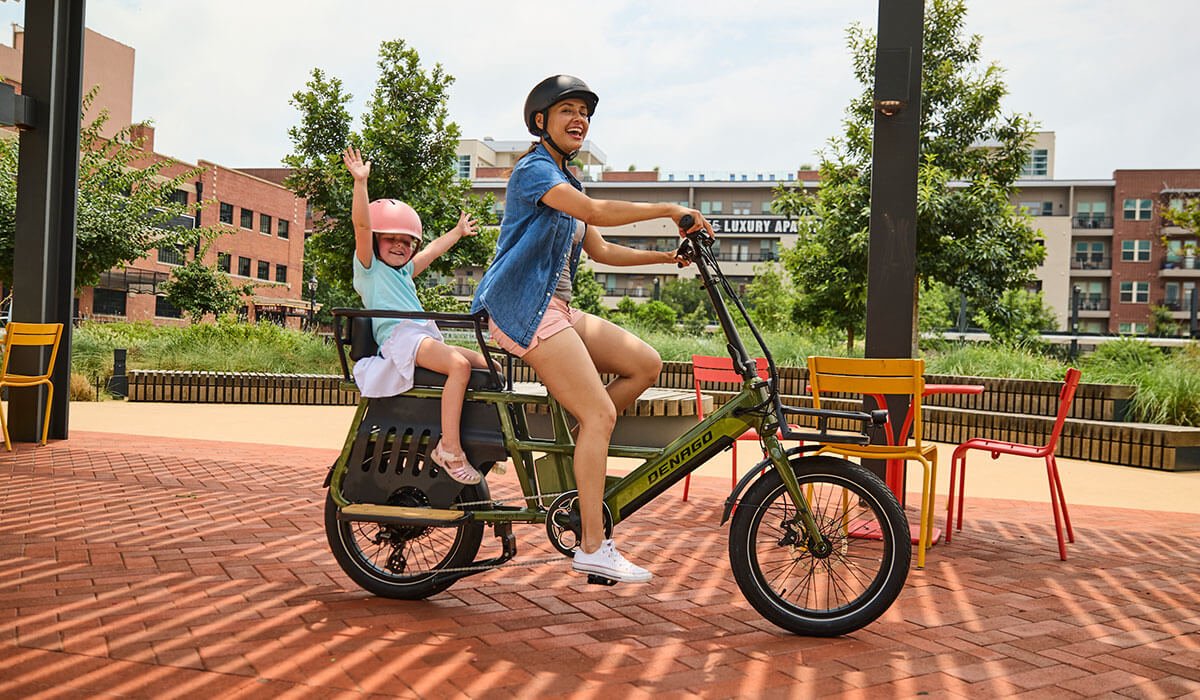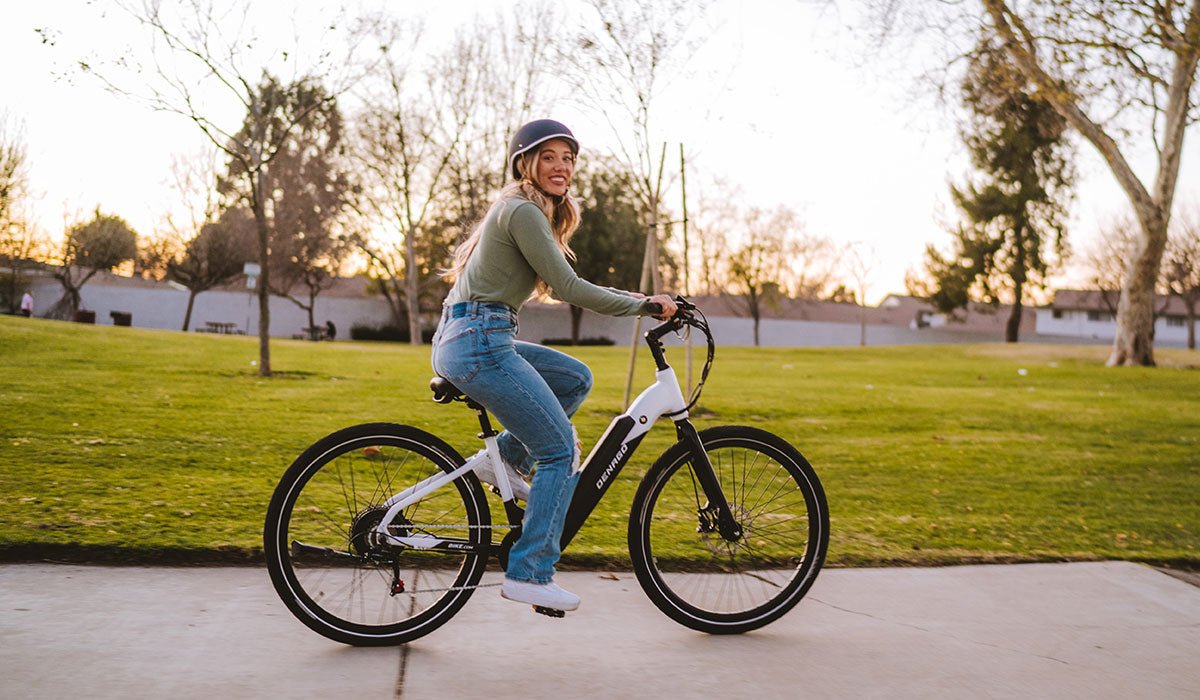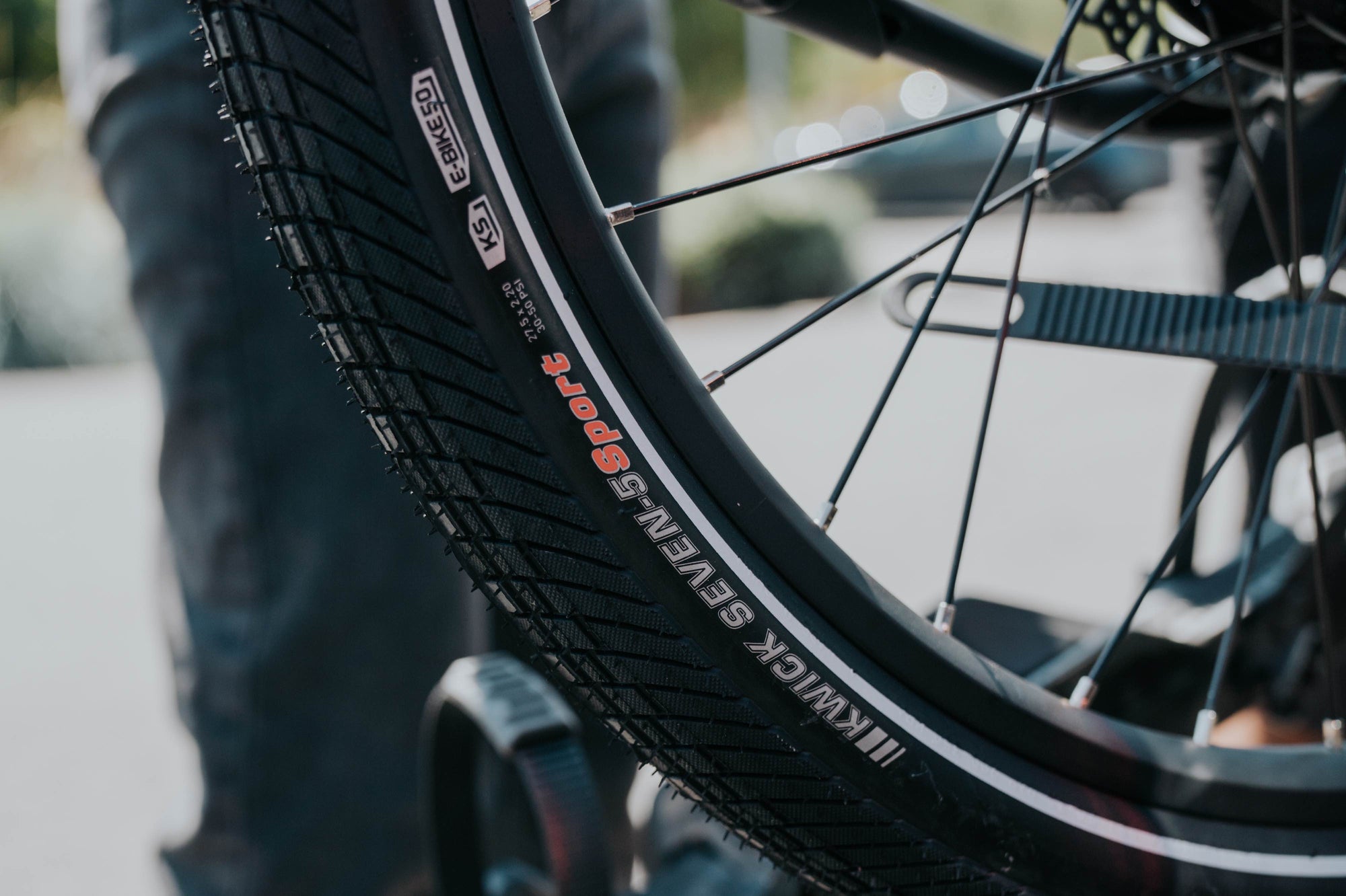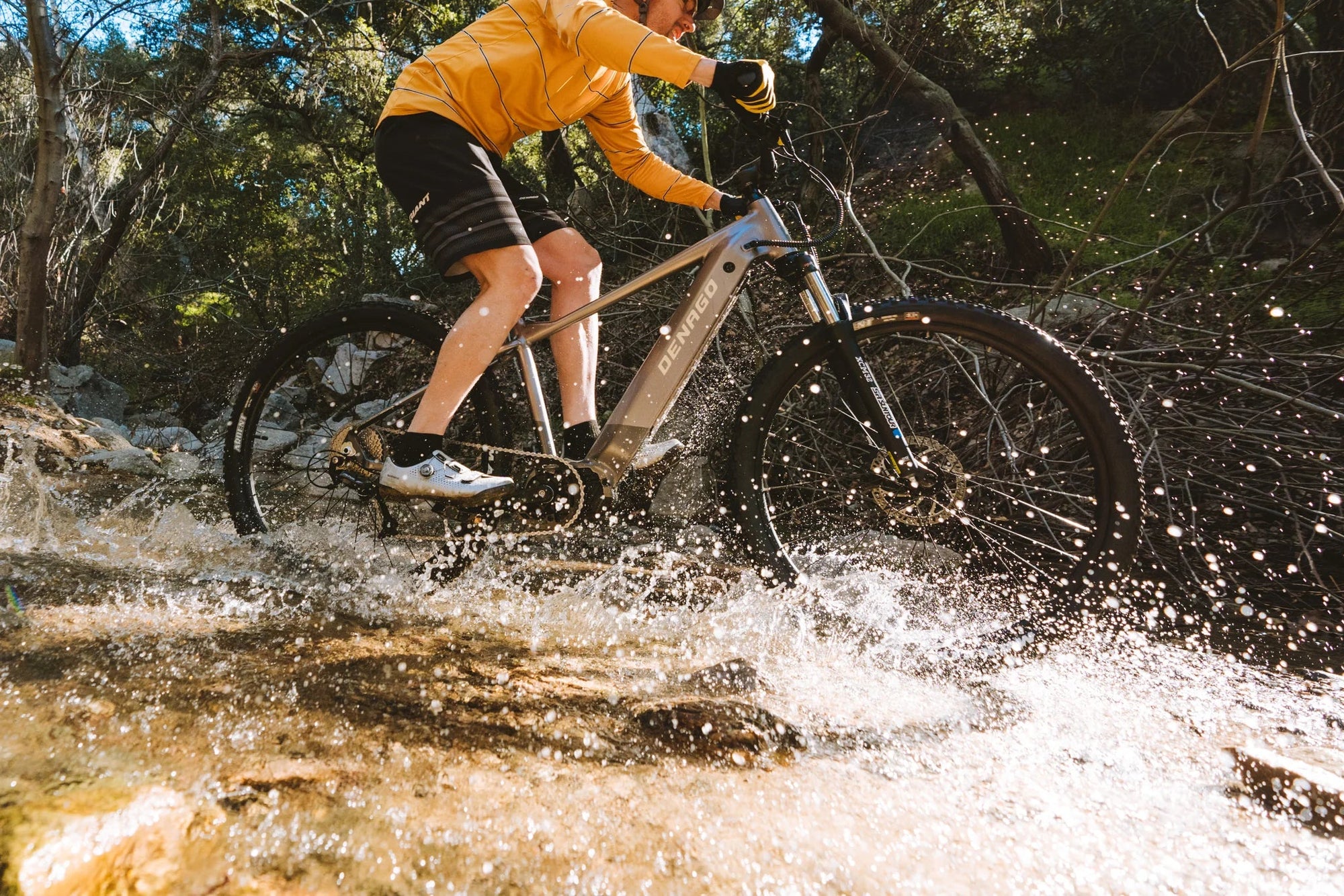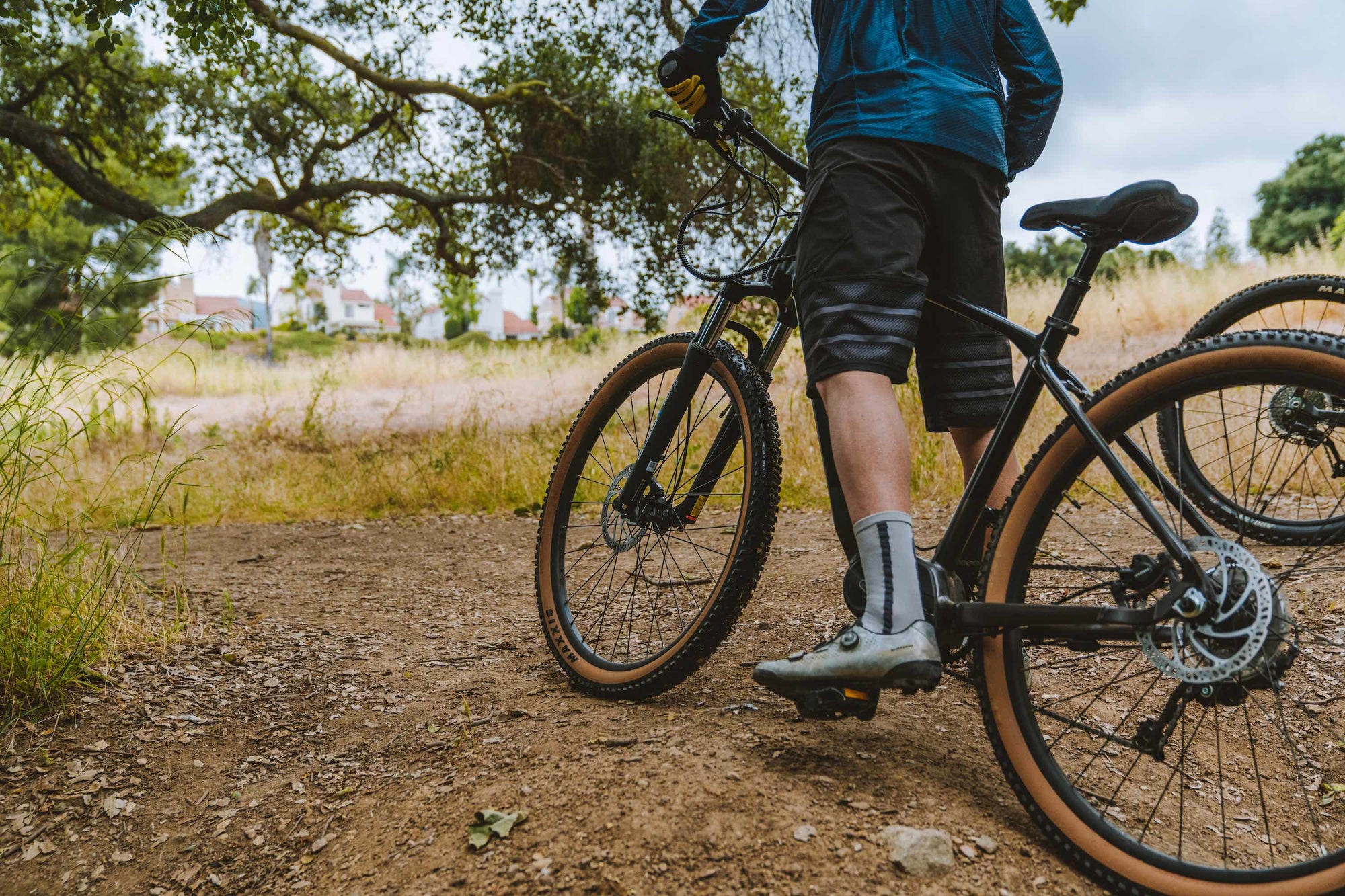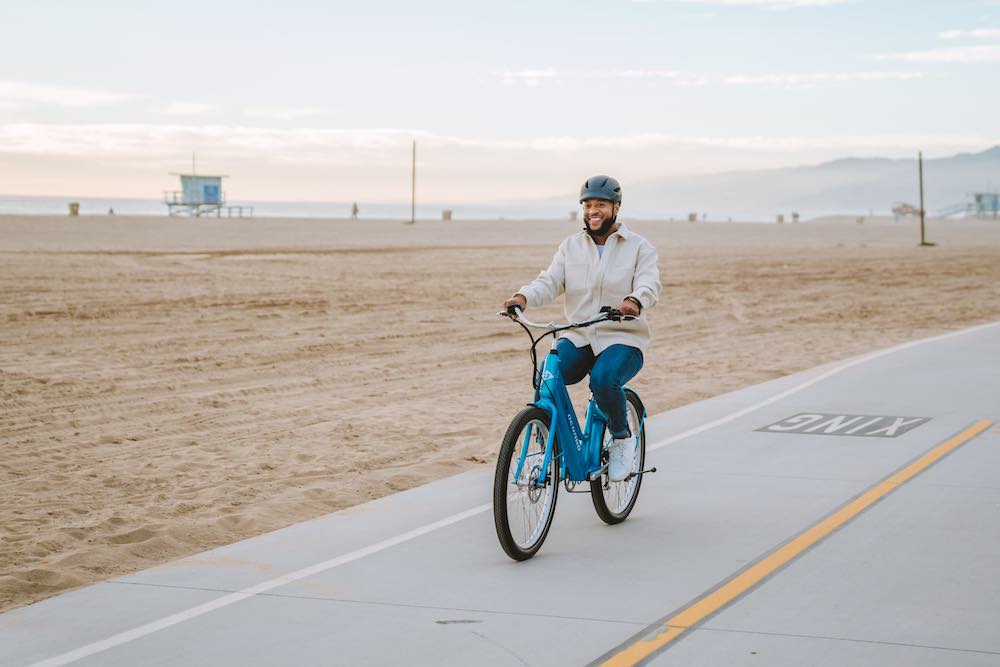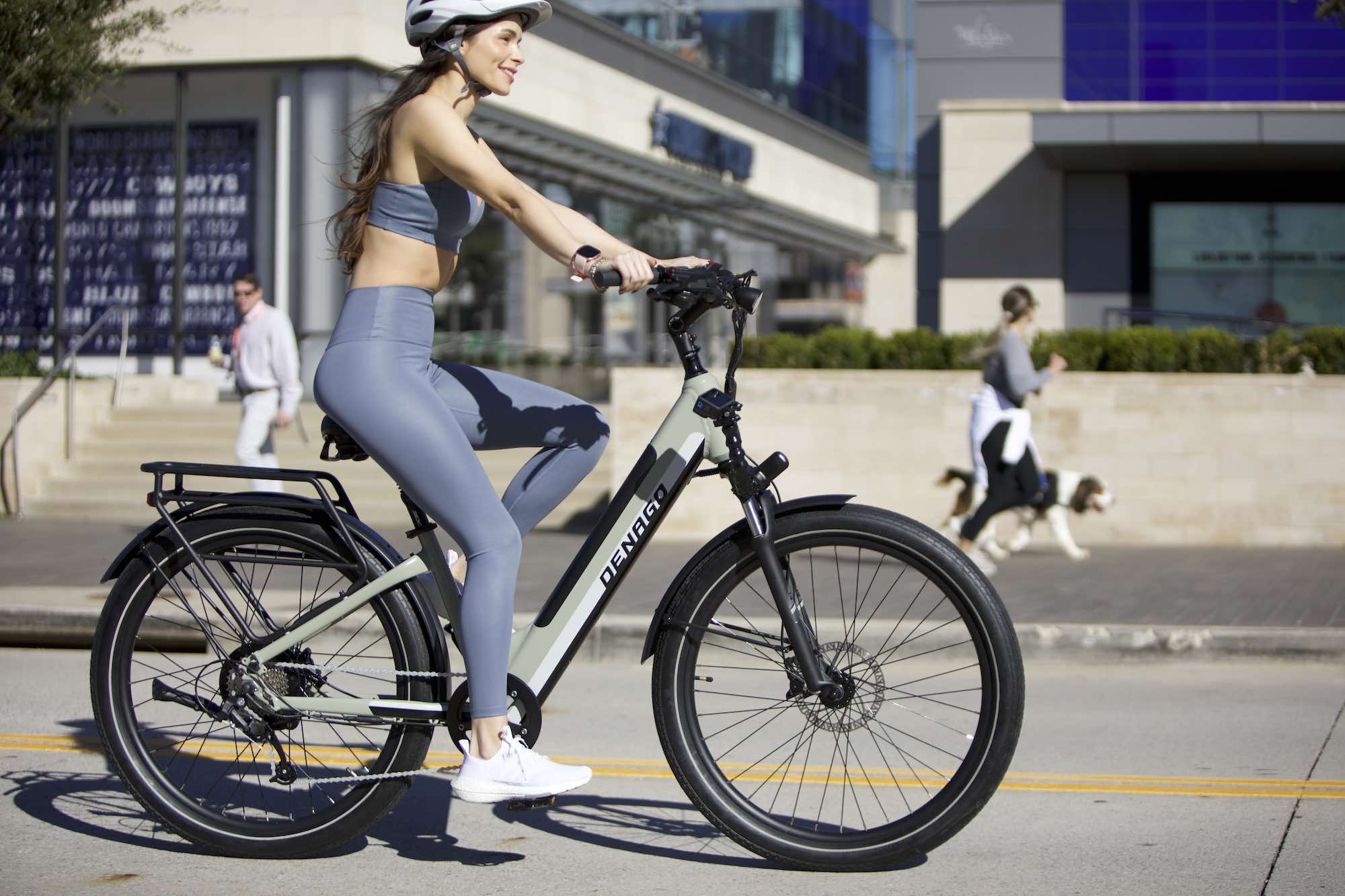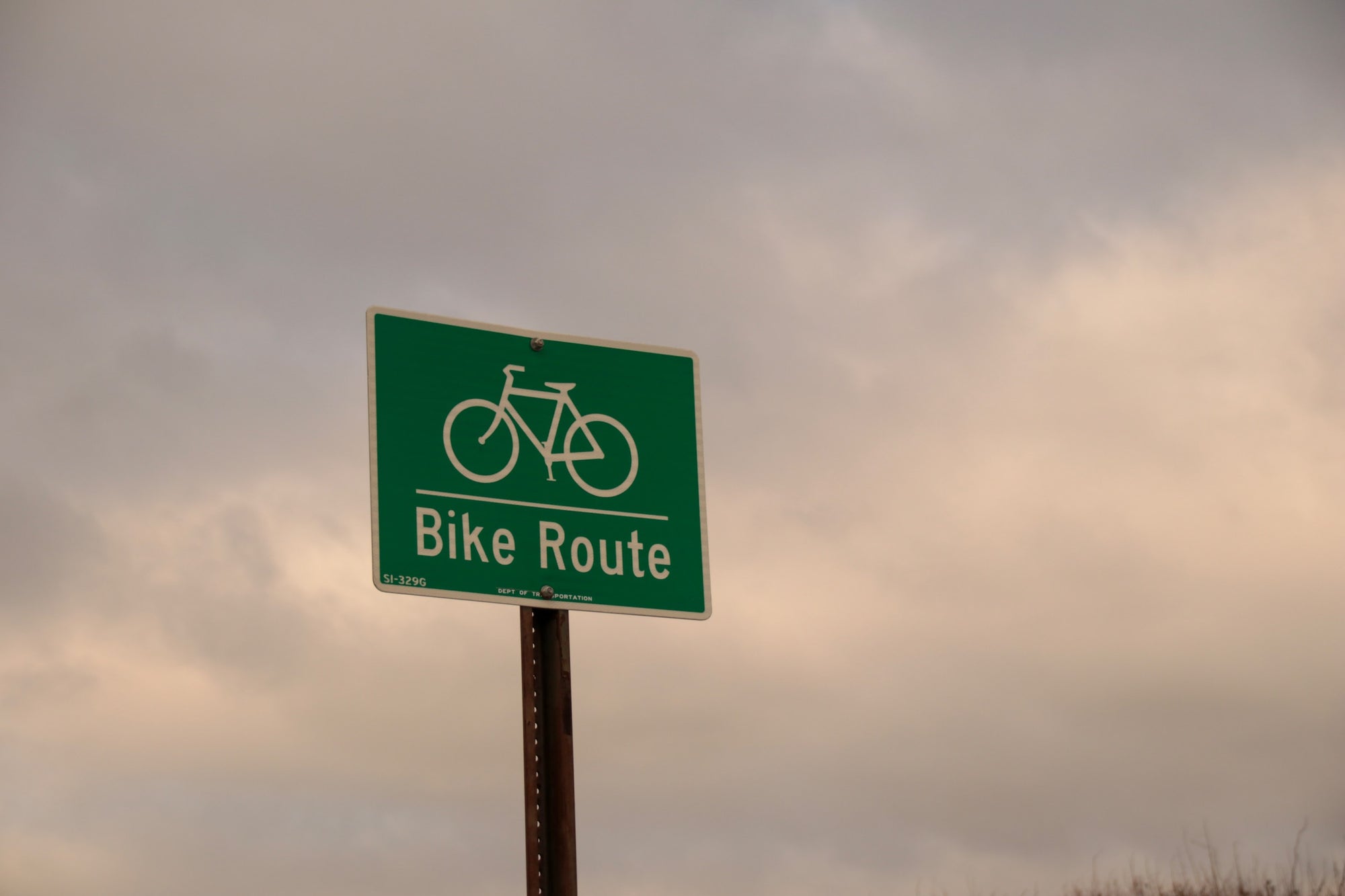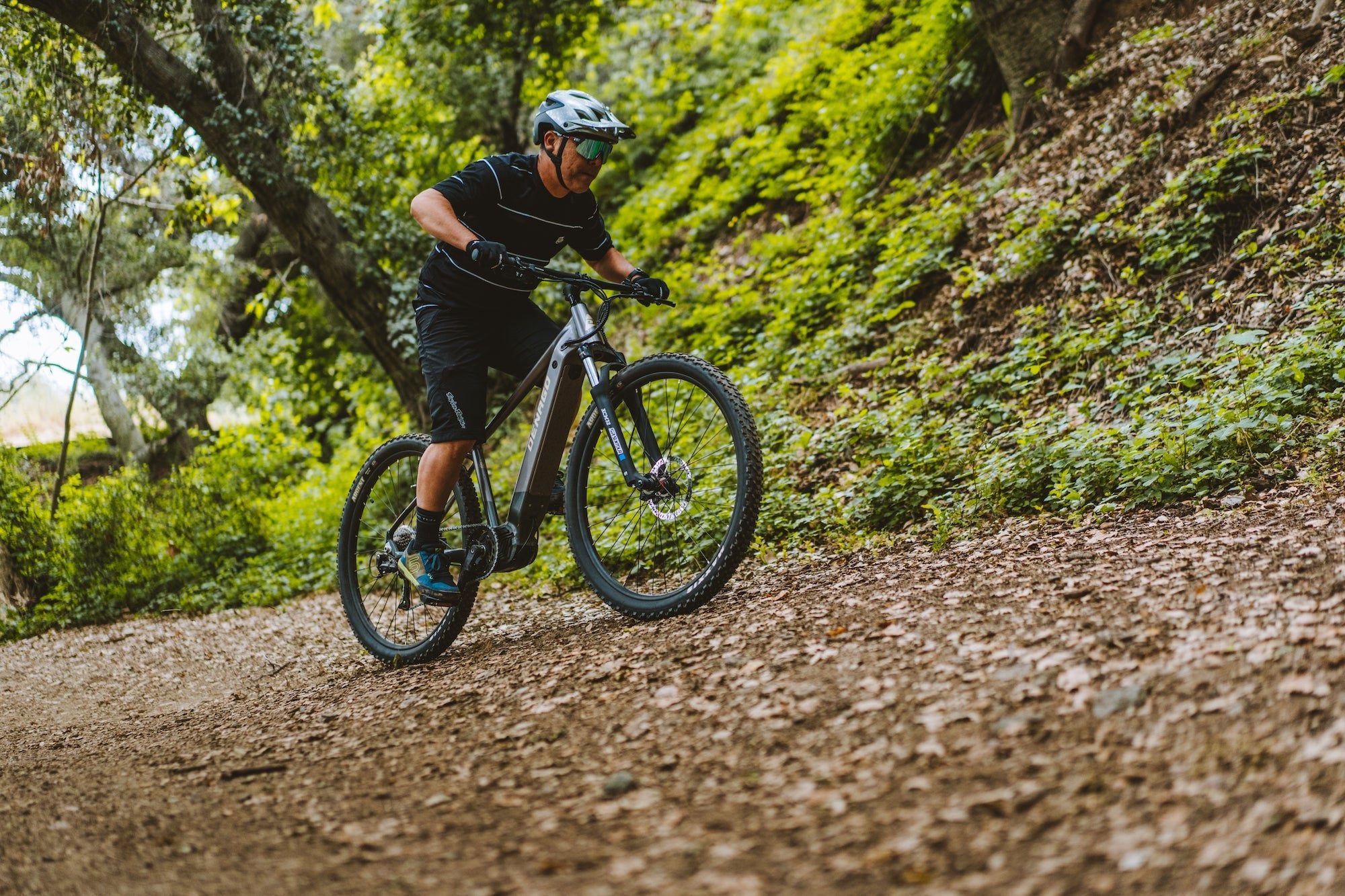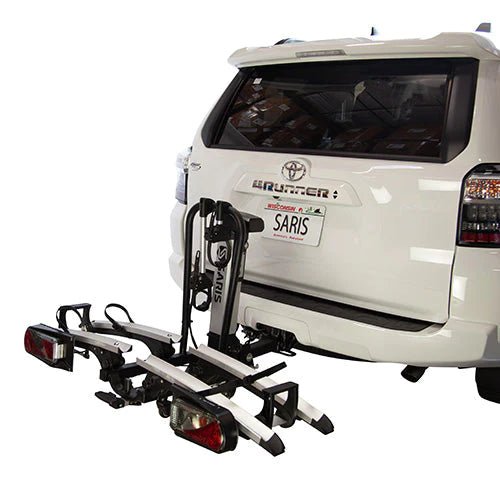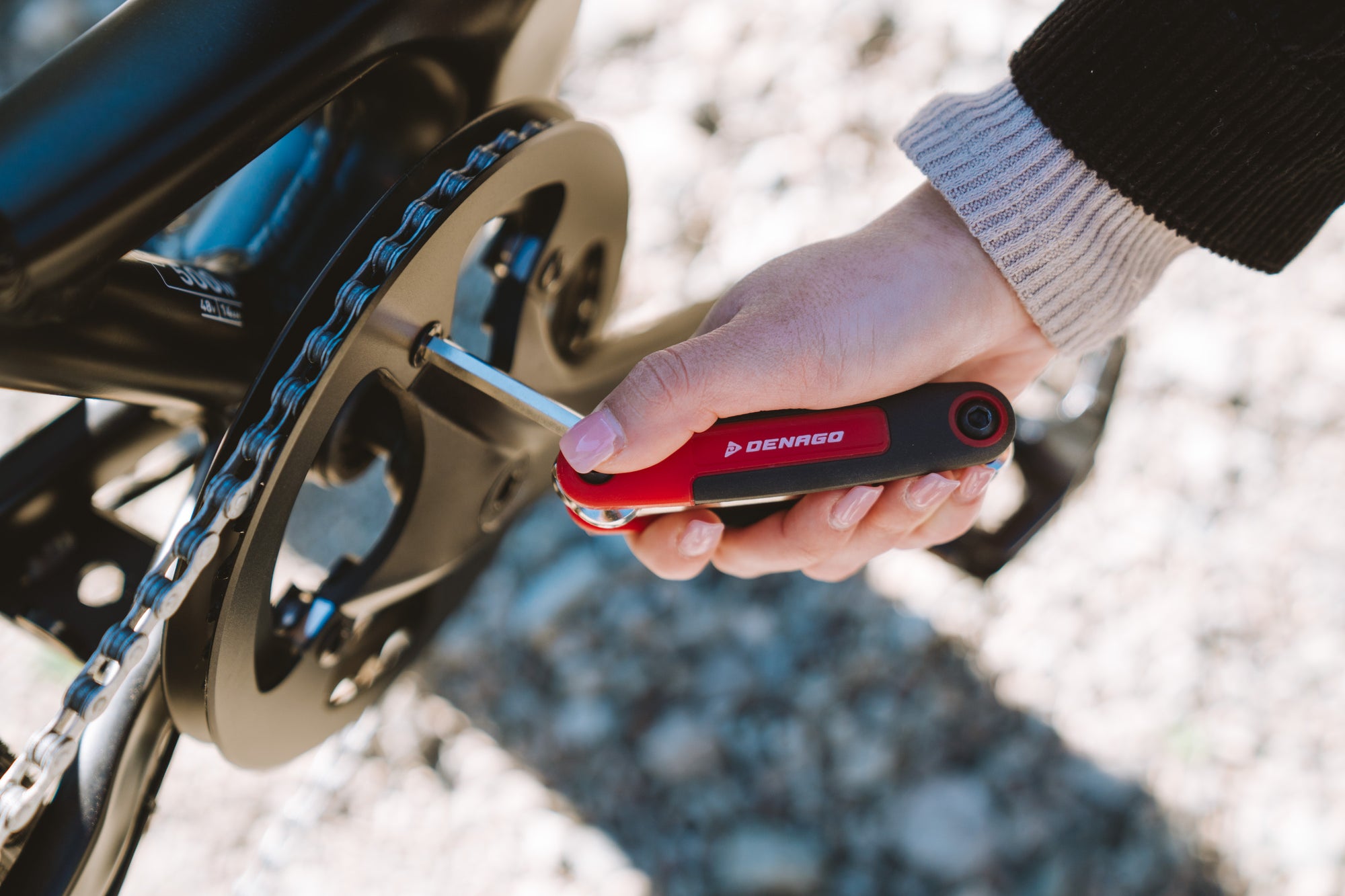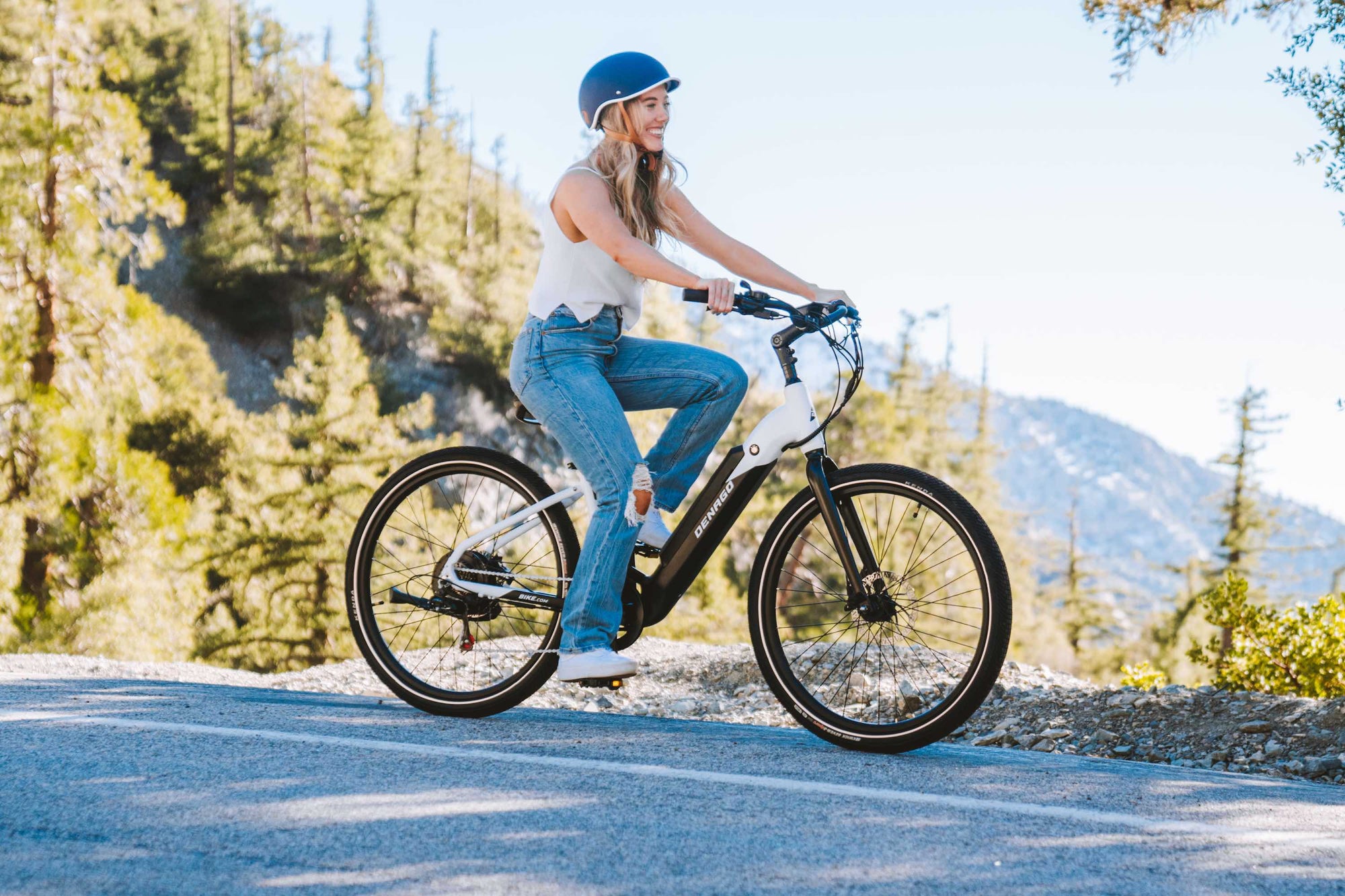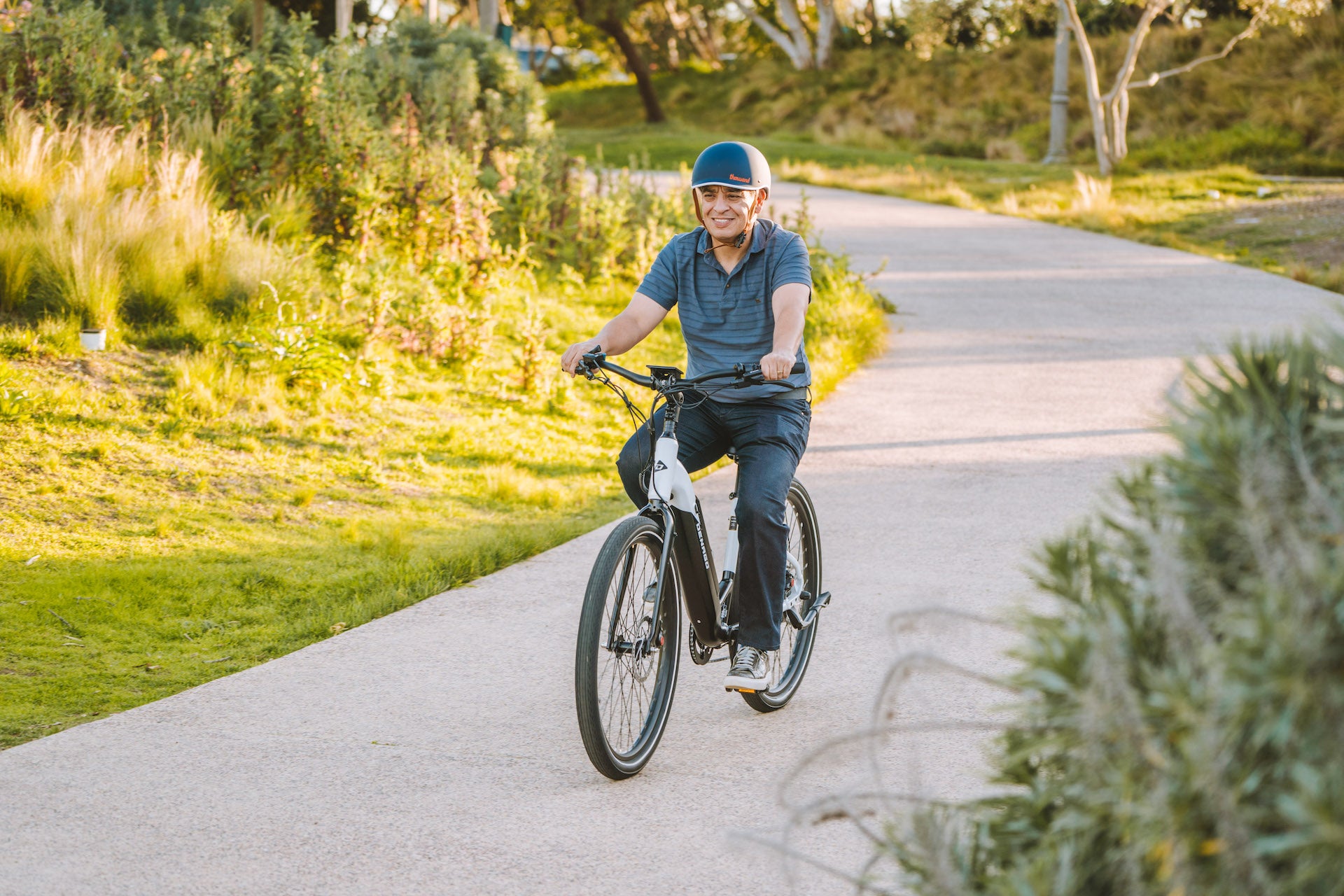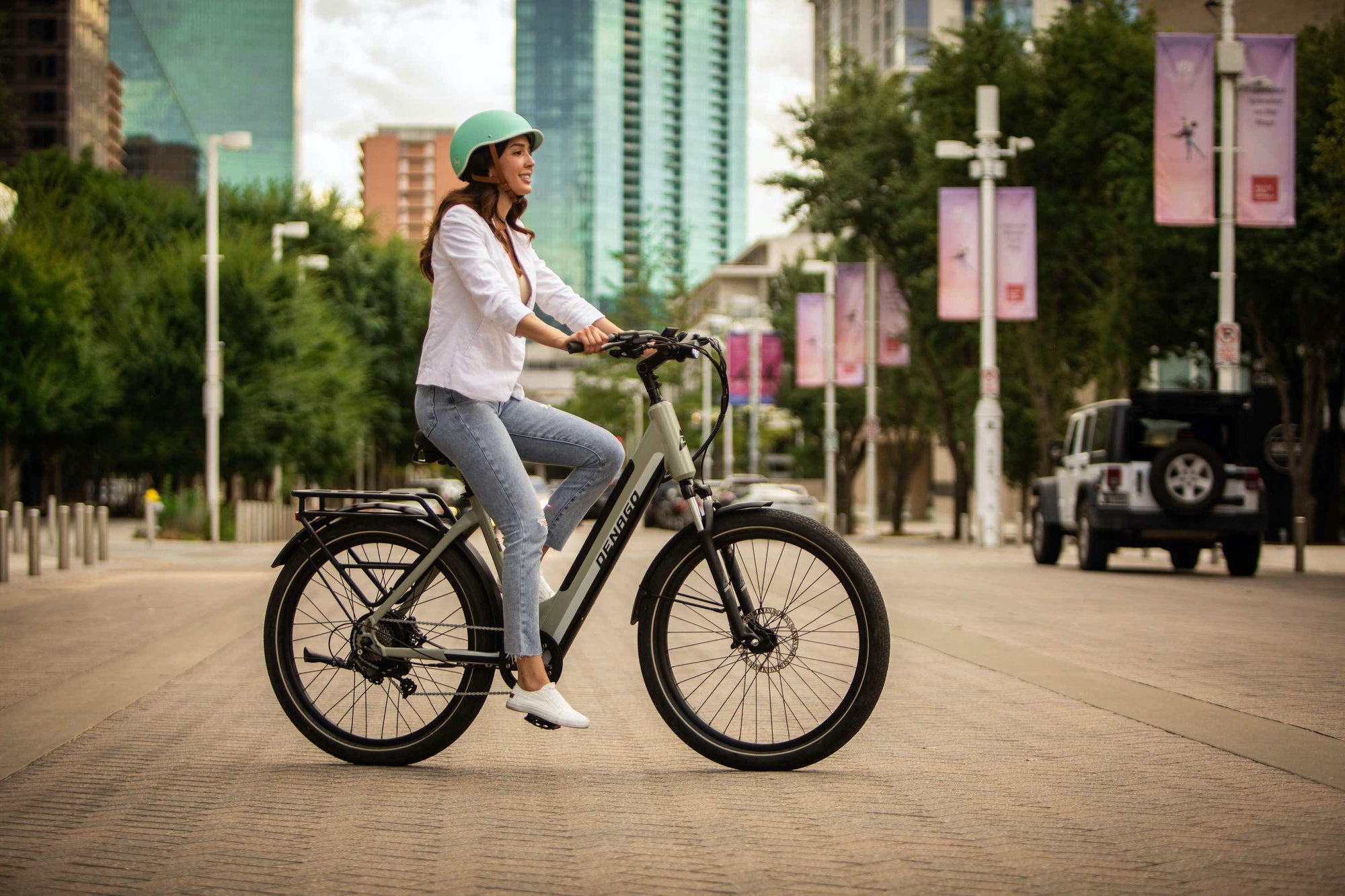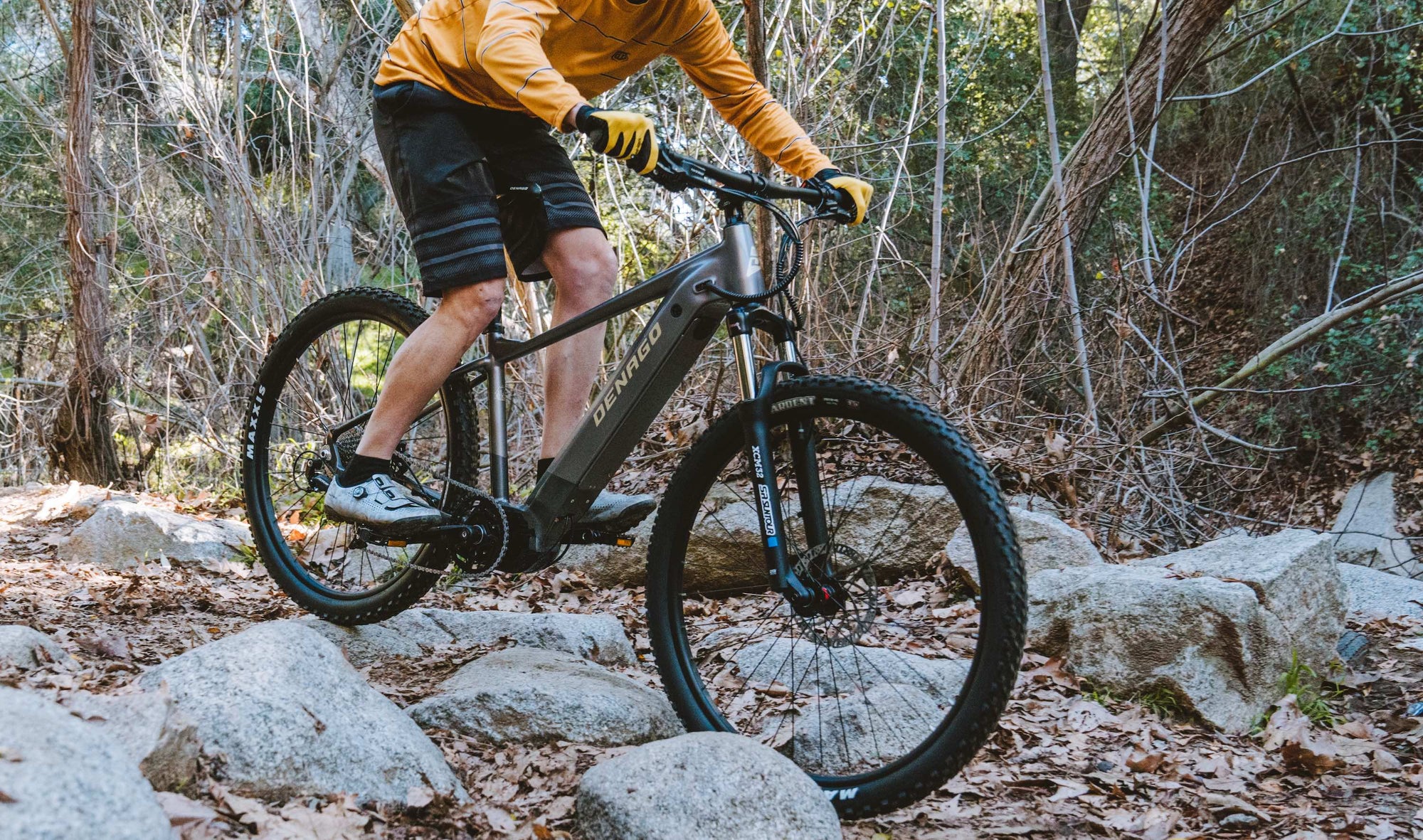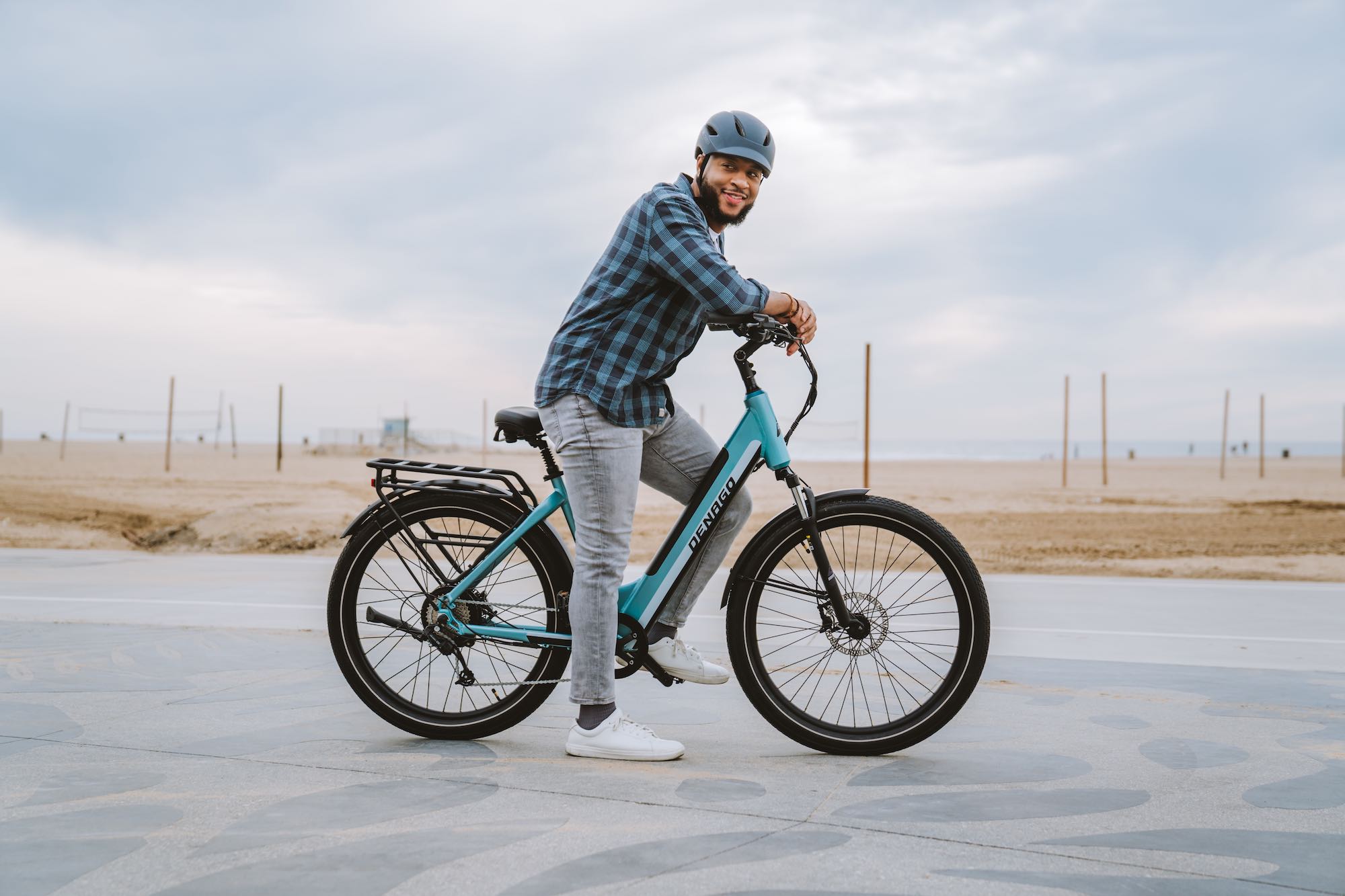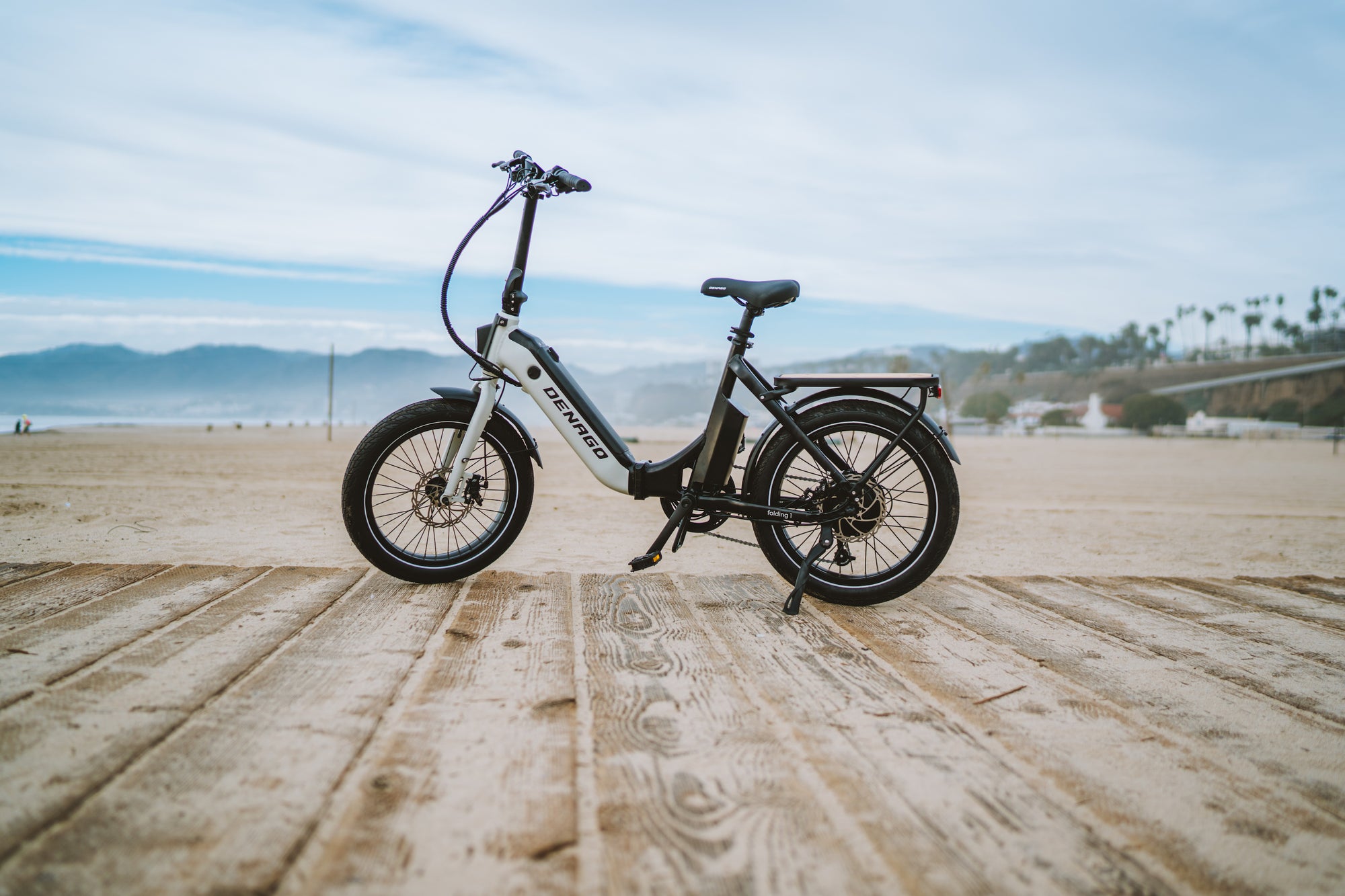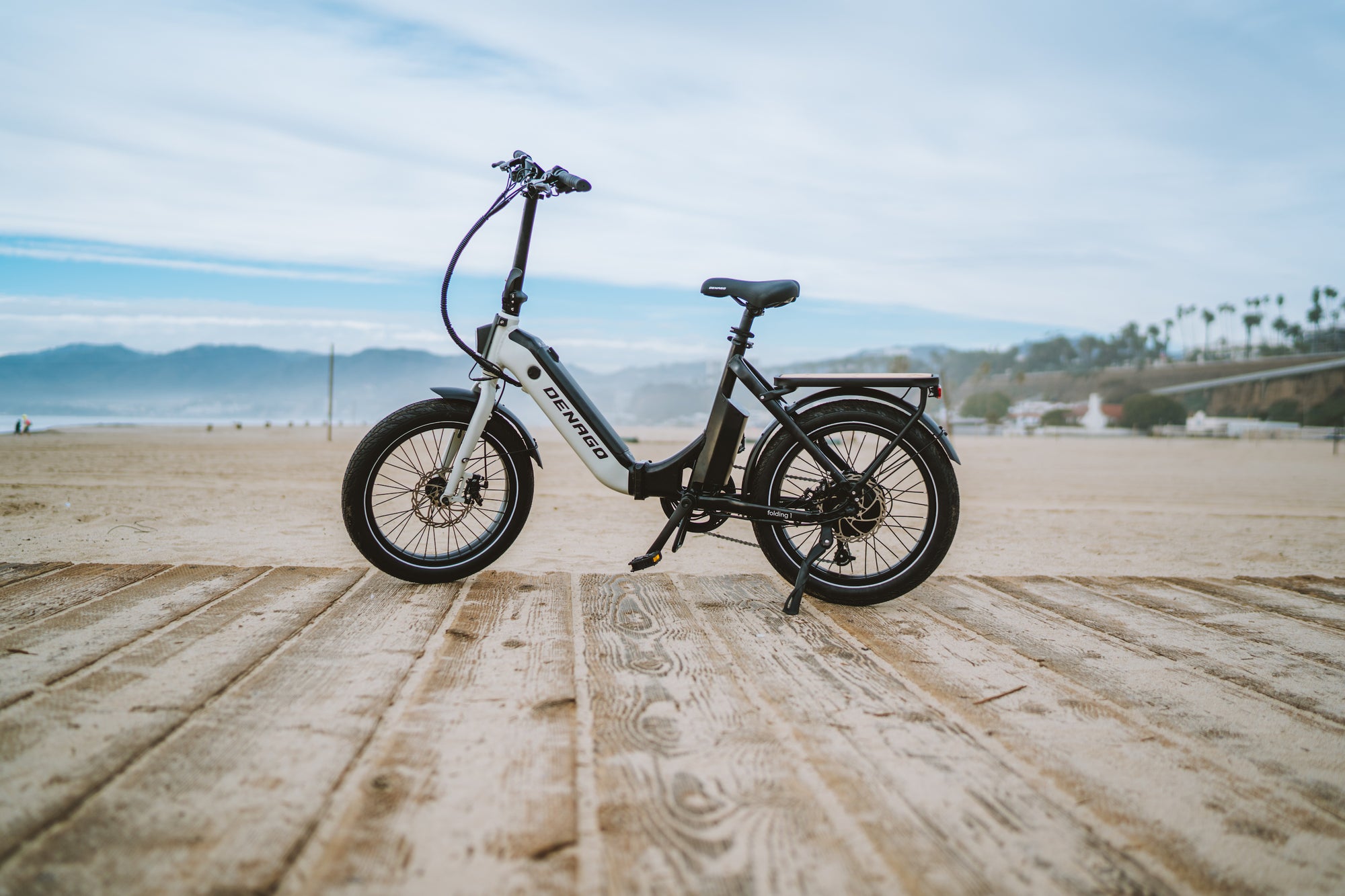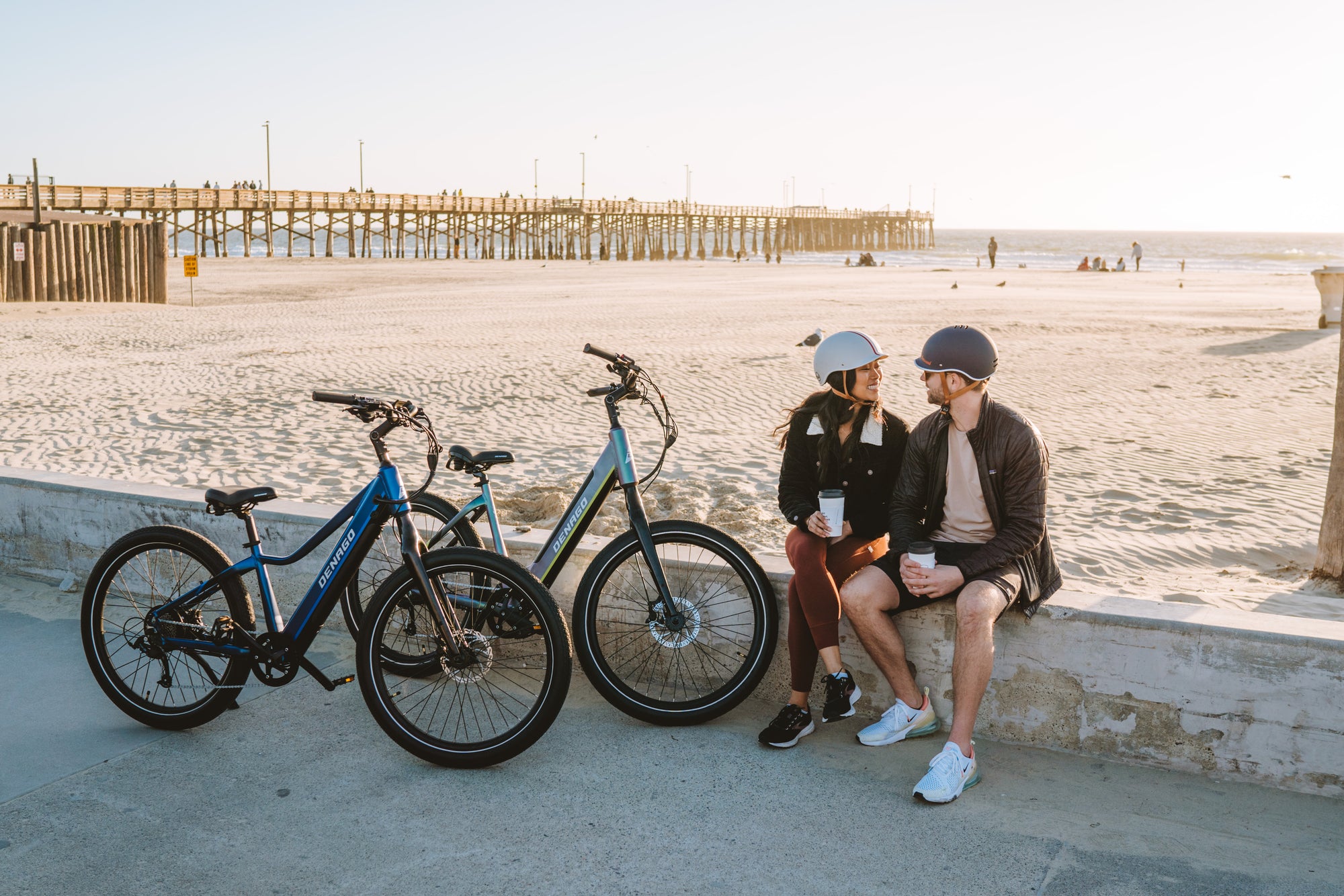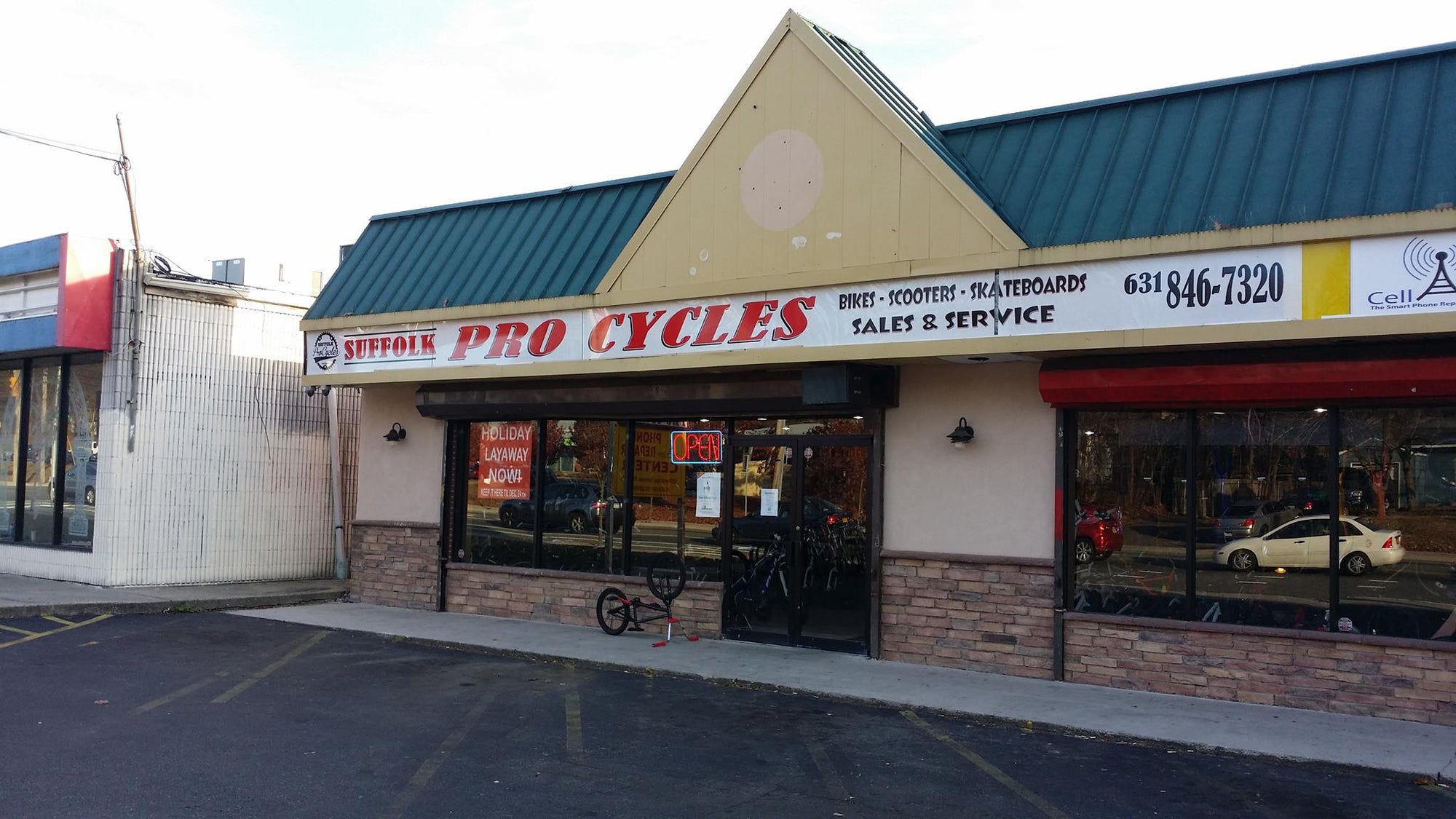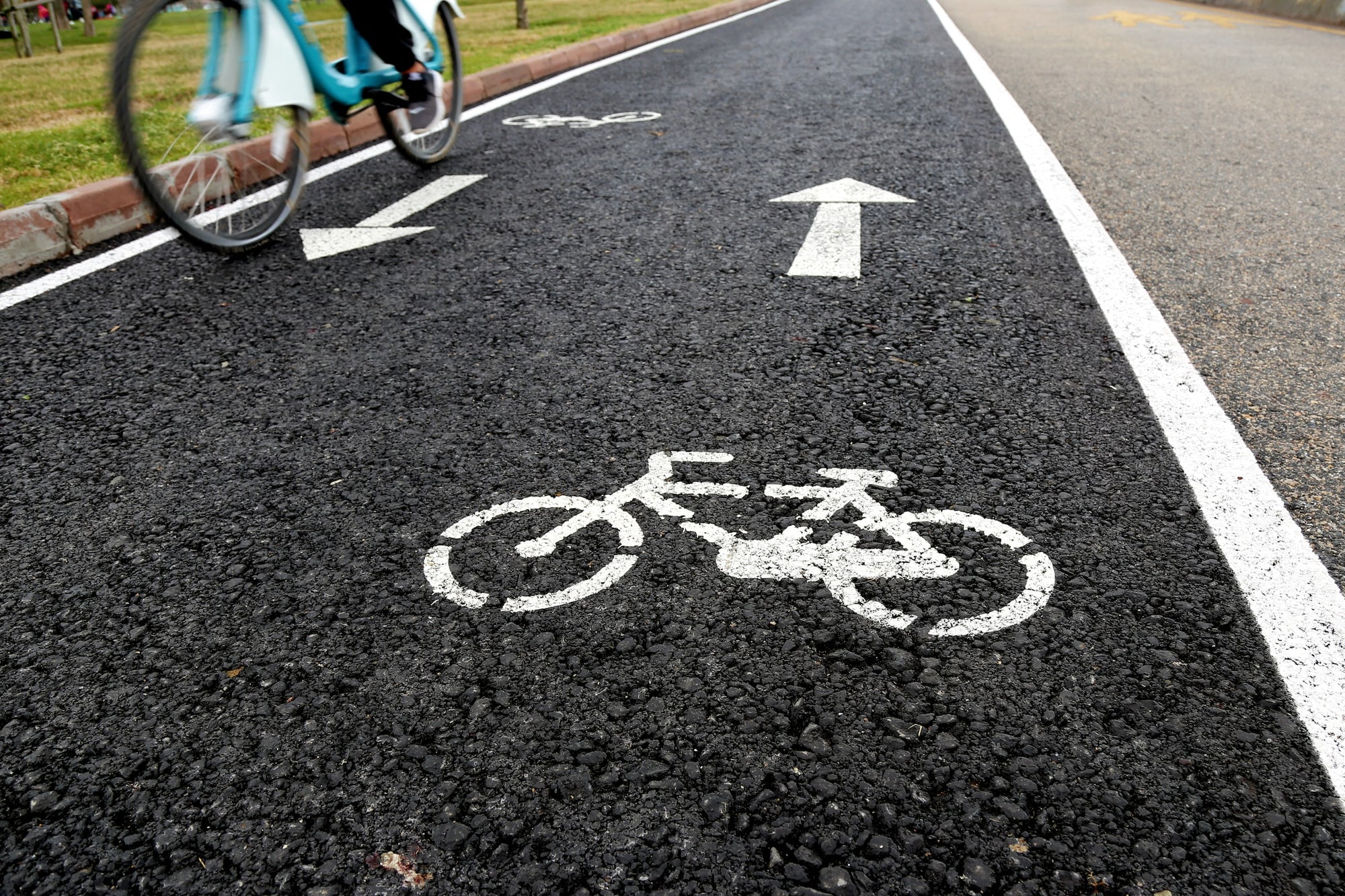Two commuter-focused eBikes, the Denago Commute Model 1 and the refreshed Aventon Level.2 share quite a few features and specifications. Both are designed to replace your car for commuting to work or school, and also work for casual and comfort-focused riding as well.
Comparisons between these two models are easy because their retail prices ($1,999 for the Denago, $1,949 for the Aventon) are so close, making a head-to-head inspection of the pros and cons of each simple.
Let's dig into the differences and what these two models share.
The primary difference between the Aventon Level.2 and Denago Commute Model 1
Aventon's Level.2 uses a torque sensor, while the Denago Commute Model 1 uses a cadence sensor. Torque sensors are generally acknowledged as superior for off-road riding, because they offer the most natural pedaling feel. The jury is out, however, for riding on paved surfaces, and torque and cadence sensors both have pros and cons.
On a cadence sensor eBike, simply turning the pedals engages the motor - regardless of how hard you pedal. That means you can "ghost pedal" if desired - putting minimal pedaling input in, but still getting a ton of motor power (and thus higher speeds) back, allowing you to climb hills without much effort if desired. On a torque sensor eBike, in contrast, the motor output is a direct result of how hard you pedal. This means "ghost-pedaling" isn't possible on a torque sensor bike, because if you barely move your legs, the motor will barely respond!
The bottom line - on a torque sensor eBike, the rider has to work. That's fine when you want to pedal for fitness, but less than ideal if you're trying to arrive to work or school without being a sweaty mess. If that's a concern, a cadence sensor might better suit your needs for this type of use.
What features Aventon Level.2 and Denago Commute Model 1 eBikes have in common
The Aventon Level.2 and Denago City Model 1 eBikes have many specs and features in common, some of which are identical, while others are so close most riders will perceive them as the same:
- A very similar retail price
- Choice of traditional top tube or step-thru frame styles, each in two sizes to suit riders of different heights
- Both are Class III eBikes, capable of up to 28 MPH on pedal assist and 20 MPH on throttle
- Sleek, integrated batteries that make it less obvious you're riding an eBike
- 8 speed drivetrains
- Convenience features like kickstands, rear racks, fenders, and lights
- Hydraulic disc brakes with oversized 180mm rotors
- eBike-rated tires with reflective sidewalls
Aventon Level.2 and Denago Commute Model 1 eBikes - key differences
The Aventon Level.2 and Denago Commute Model 1 eBikes are different in some key areas:
- While both brands use 27.5" rims, the Denago offers significantly wider (2.6" vs. 2.1") tires. Wider tires offer more air volume, which adds comfort and control on rough streets.
- The Denago Commute 1 includes a suspension seatpost for extra comfort, the Level.2 uses a standard non-suspension seatpost.
- Denago uses premium LG cells in the battery, Aventon does not disclose the manufacturer used for the Aventon Level.2 battery cells.
- The stem used on the Denago features an adjustable angle for rider comfort, while the stem on the Aventon is fixed and the angle can't be changed to suit the rider.
- The Denago Commute Model 1 uses a greyscale screen; the Aventon Level.2 uses a color display.
- The Level.2 offers the ability to sync with the rider's mobile phone via an app.
Which commuter eBike should you buy?
The Aventon Level.2 and Denago Commute Model 1 eBikes are very similar in terms of specs and intended use, and most riders would be happy with either! Make your decision here based primarily on the type of riding you plan to do - if you need to arrive at work or school without breaking a sweat, the cadence sensor used on the Denago Commute Model 1 might better meet your needs, while a torque sensor makes the rider work, and could make the Aventon better for riders interested in a workout.
Riders focused on comfort might also lean toward the Denago, because it includes two features the Aventon lacks: a suspension seatpost that takes the edge off road bumps, and an adjustable angle stem, which can be dialed in to suit the rider. This can eliminate the need to hunch over to reach the handlebar.
Would like to find a ebike suit you best? The denago team is here to help you choose the best eBike for your needs. Call us at (877) 755-2453 to chat anytime.



